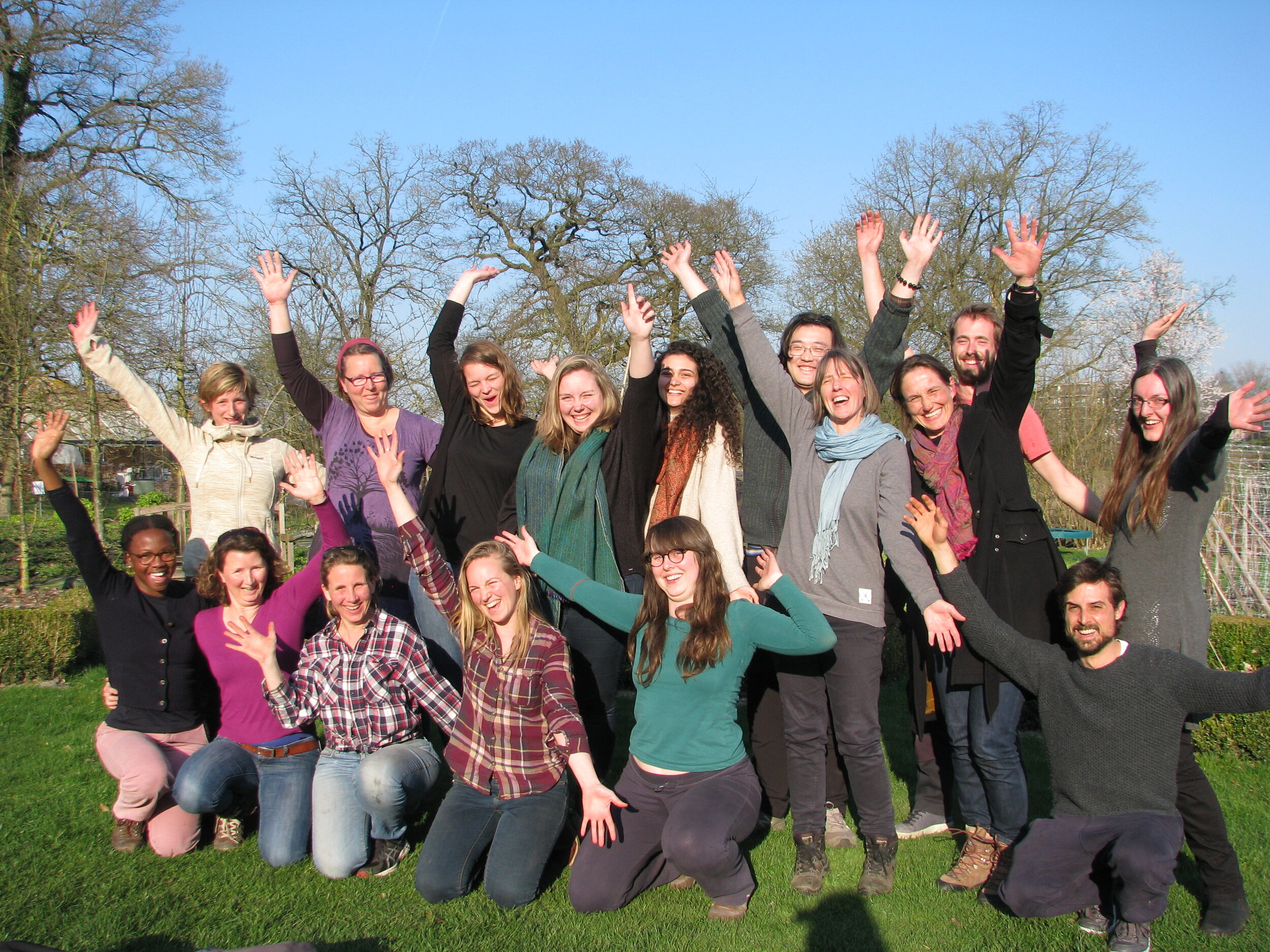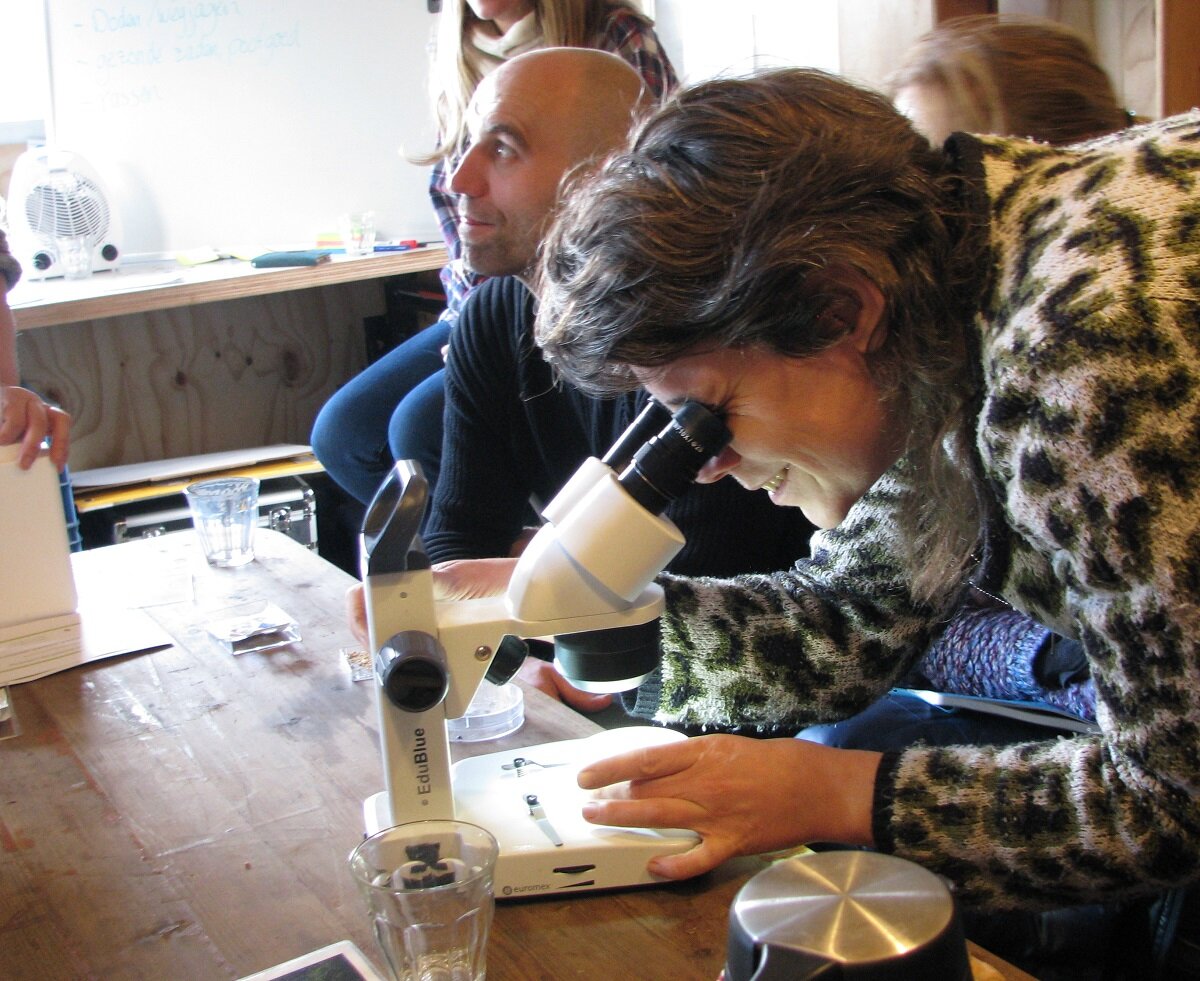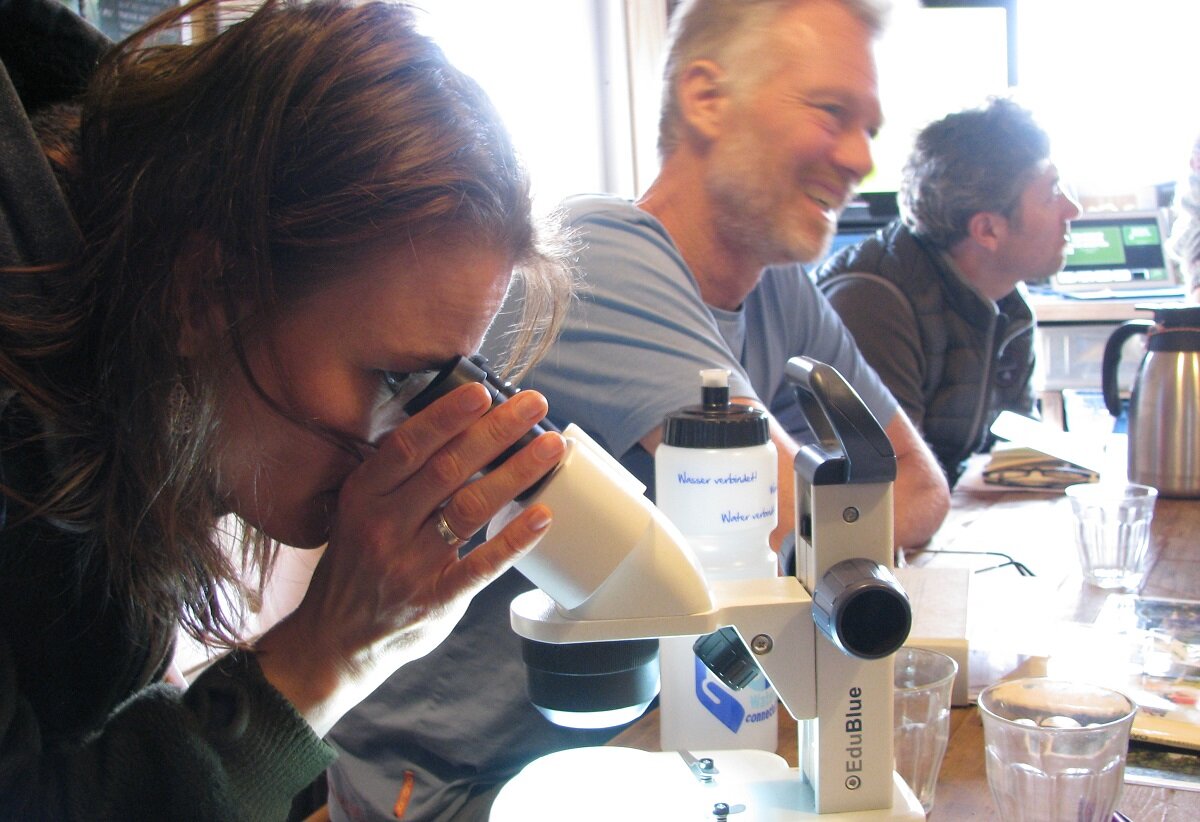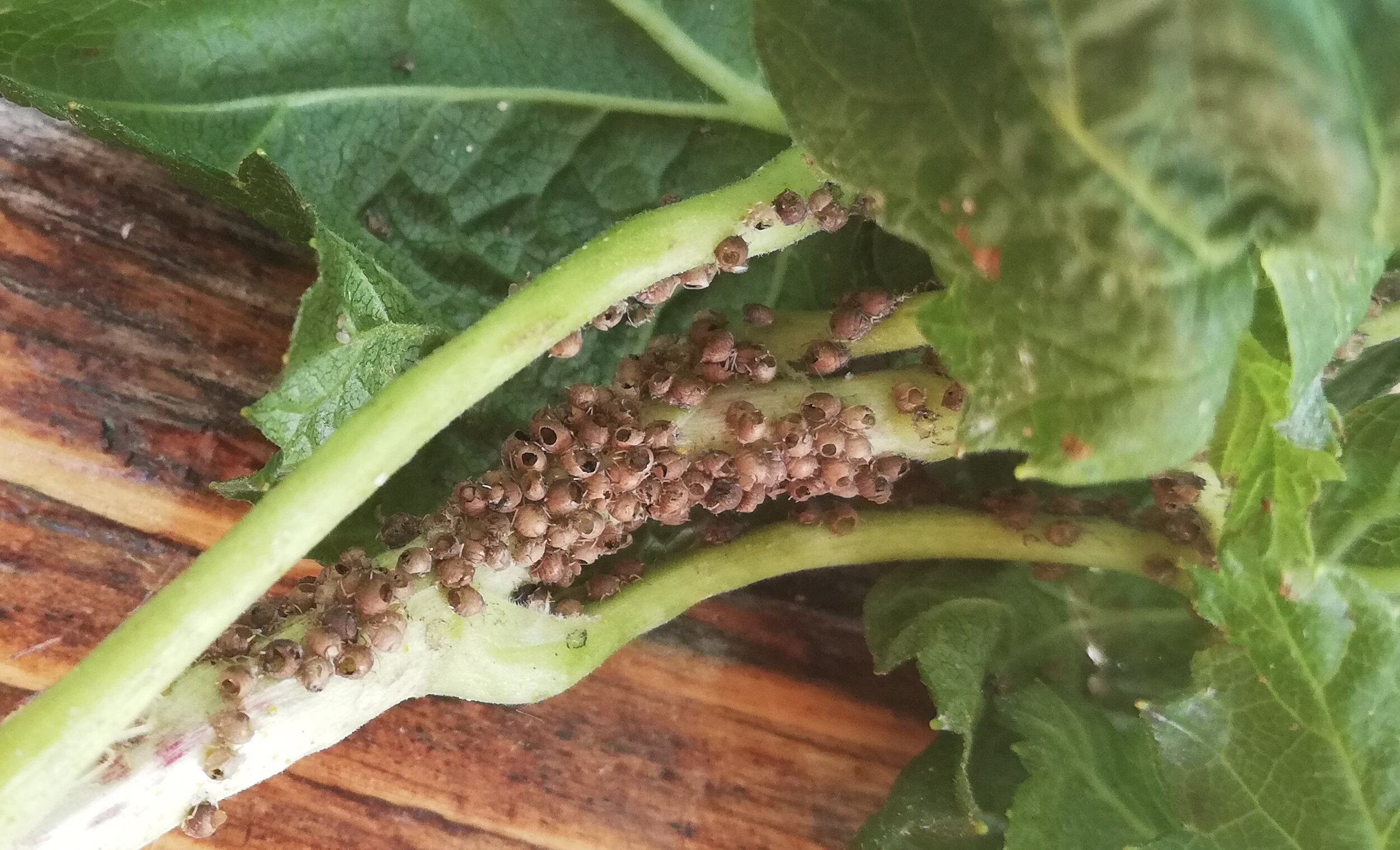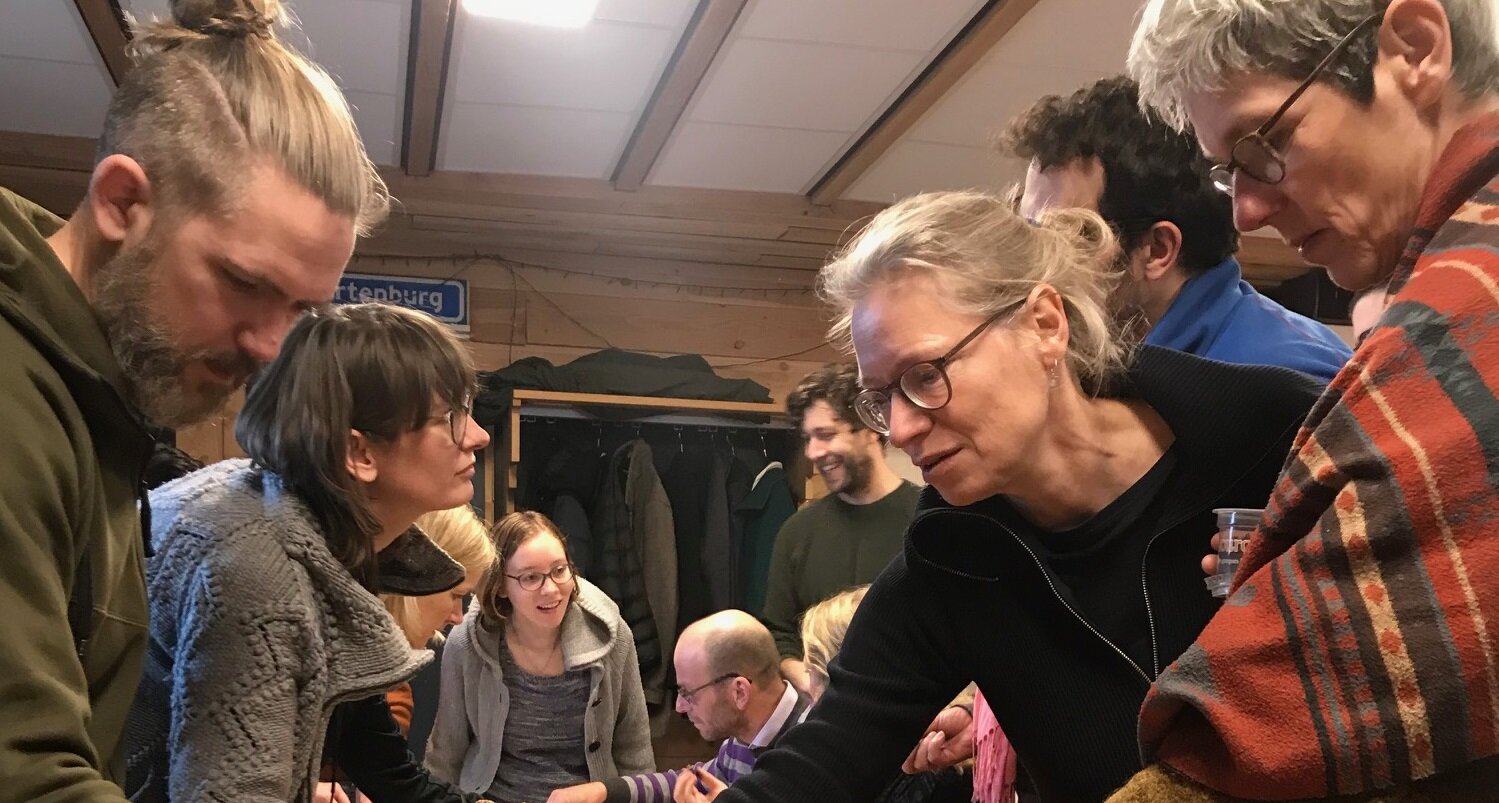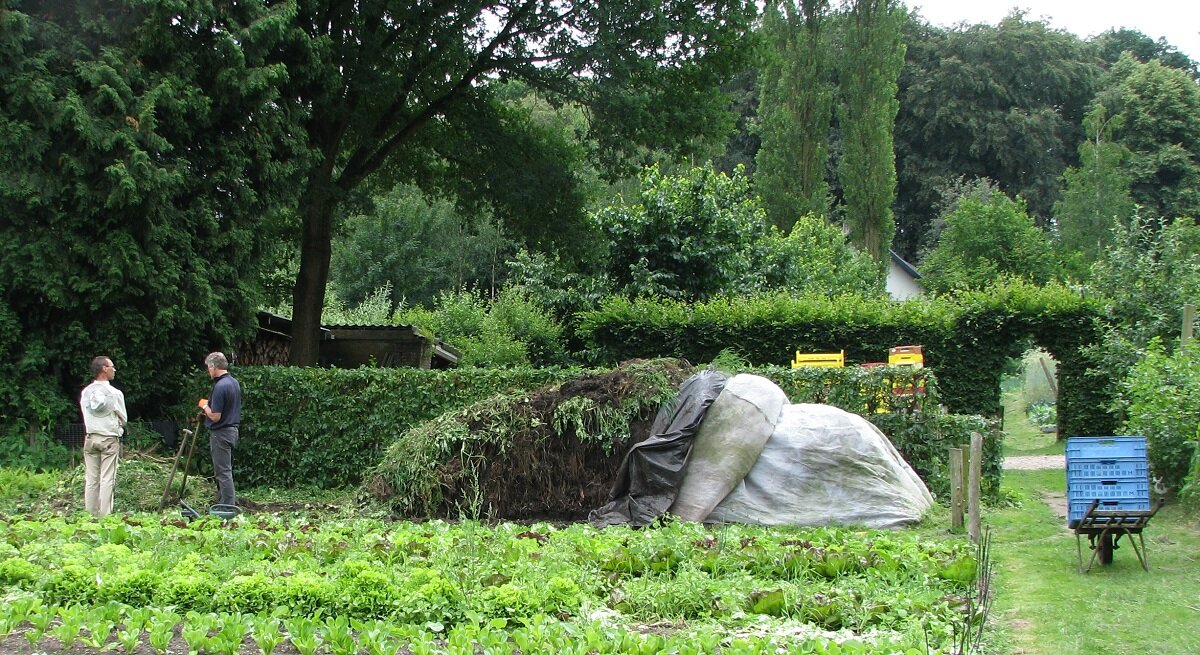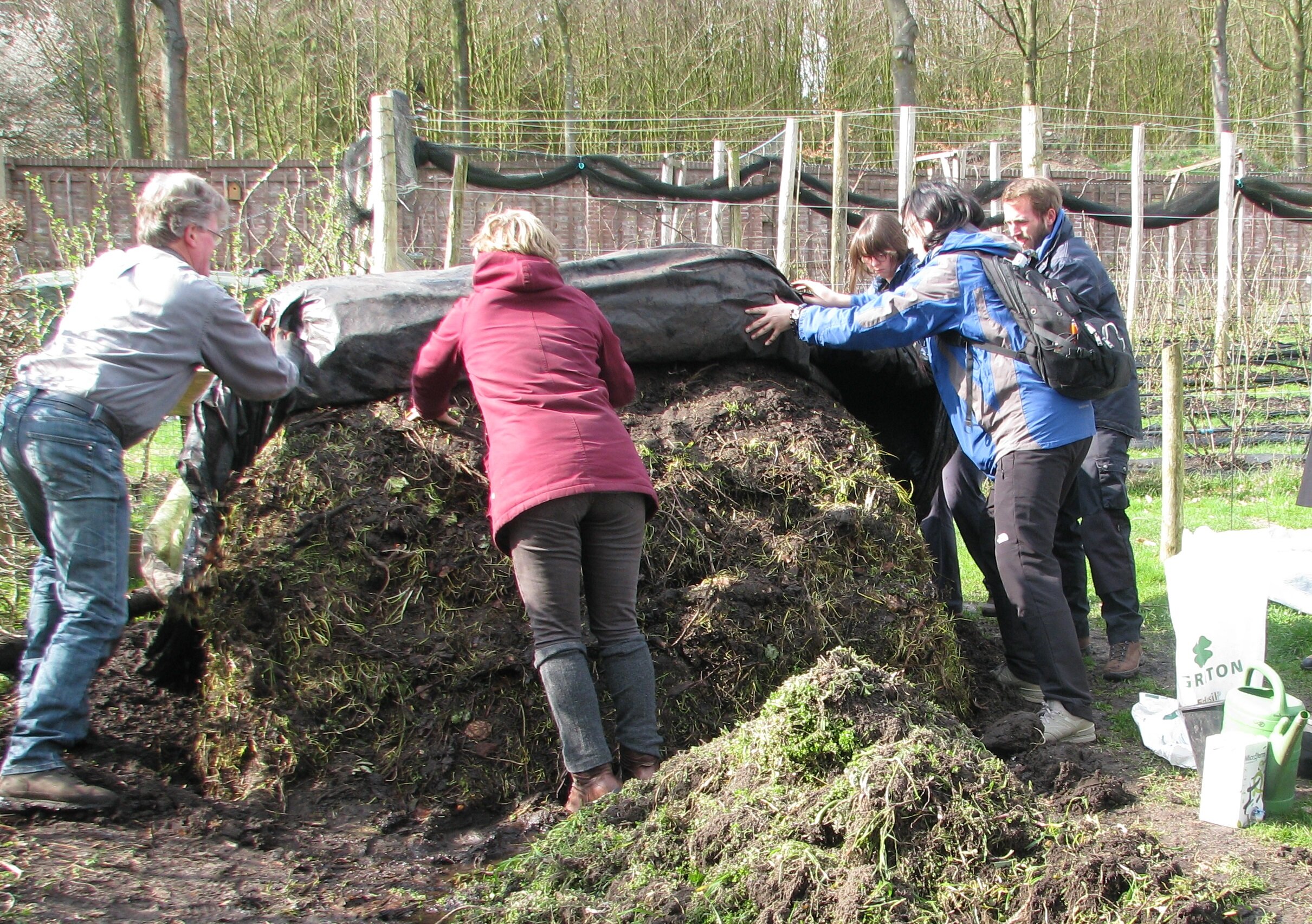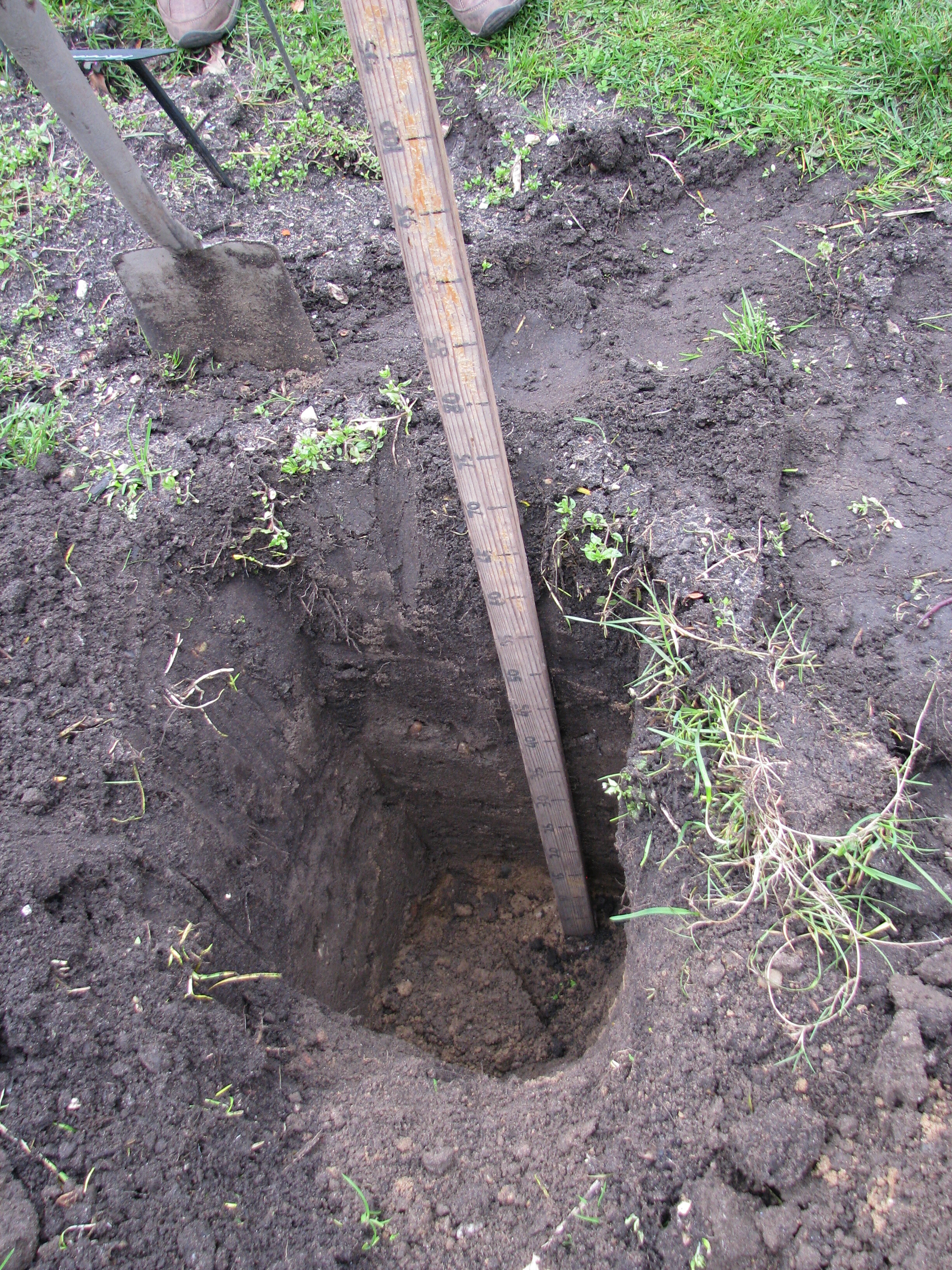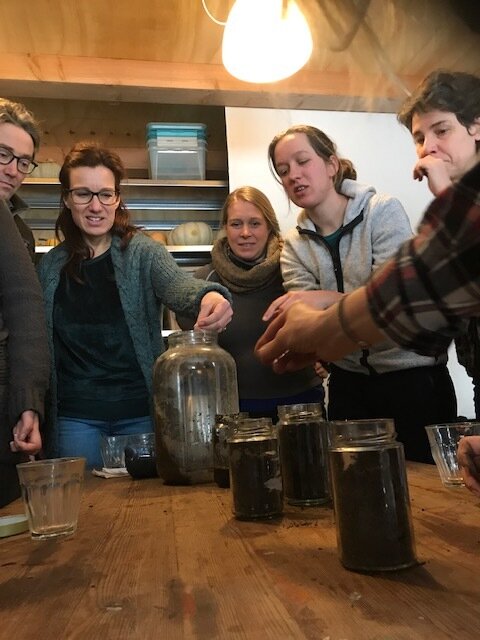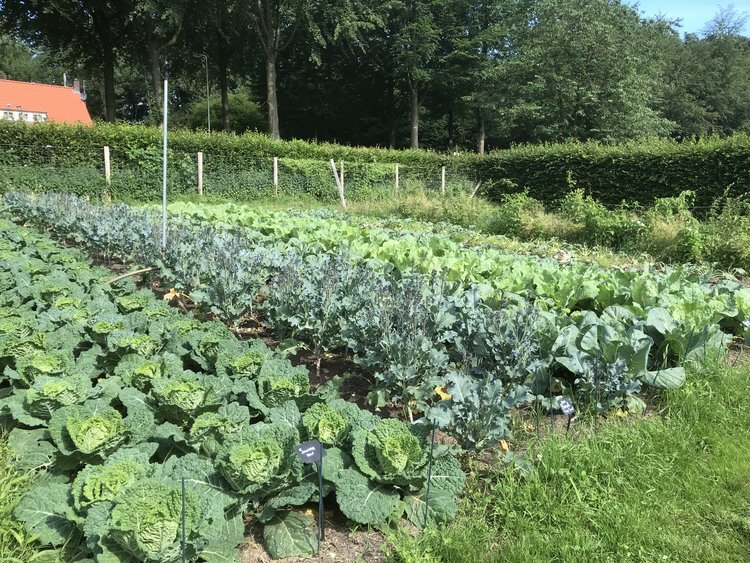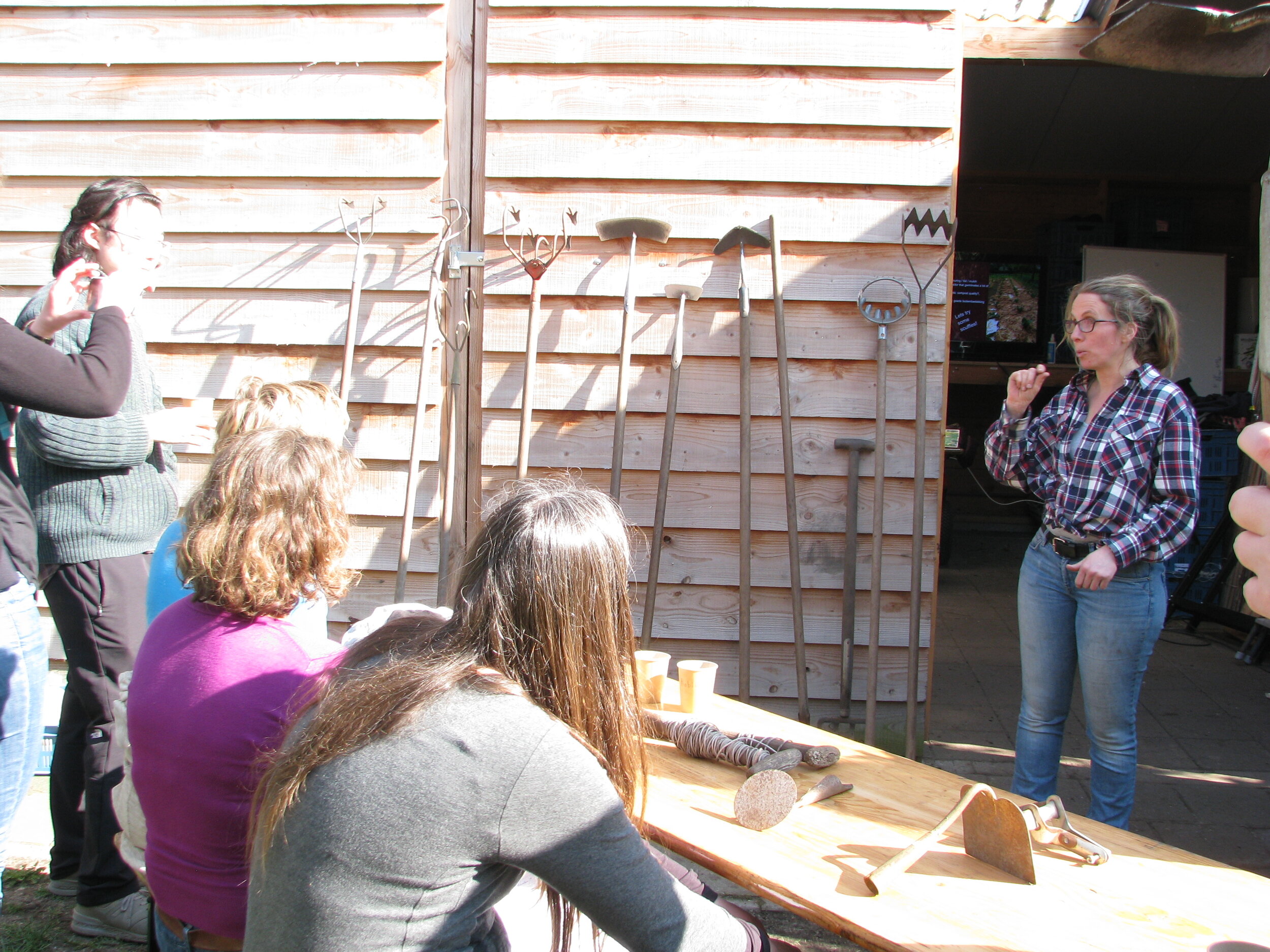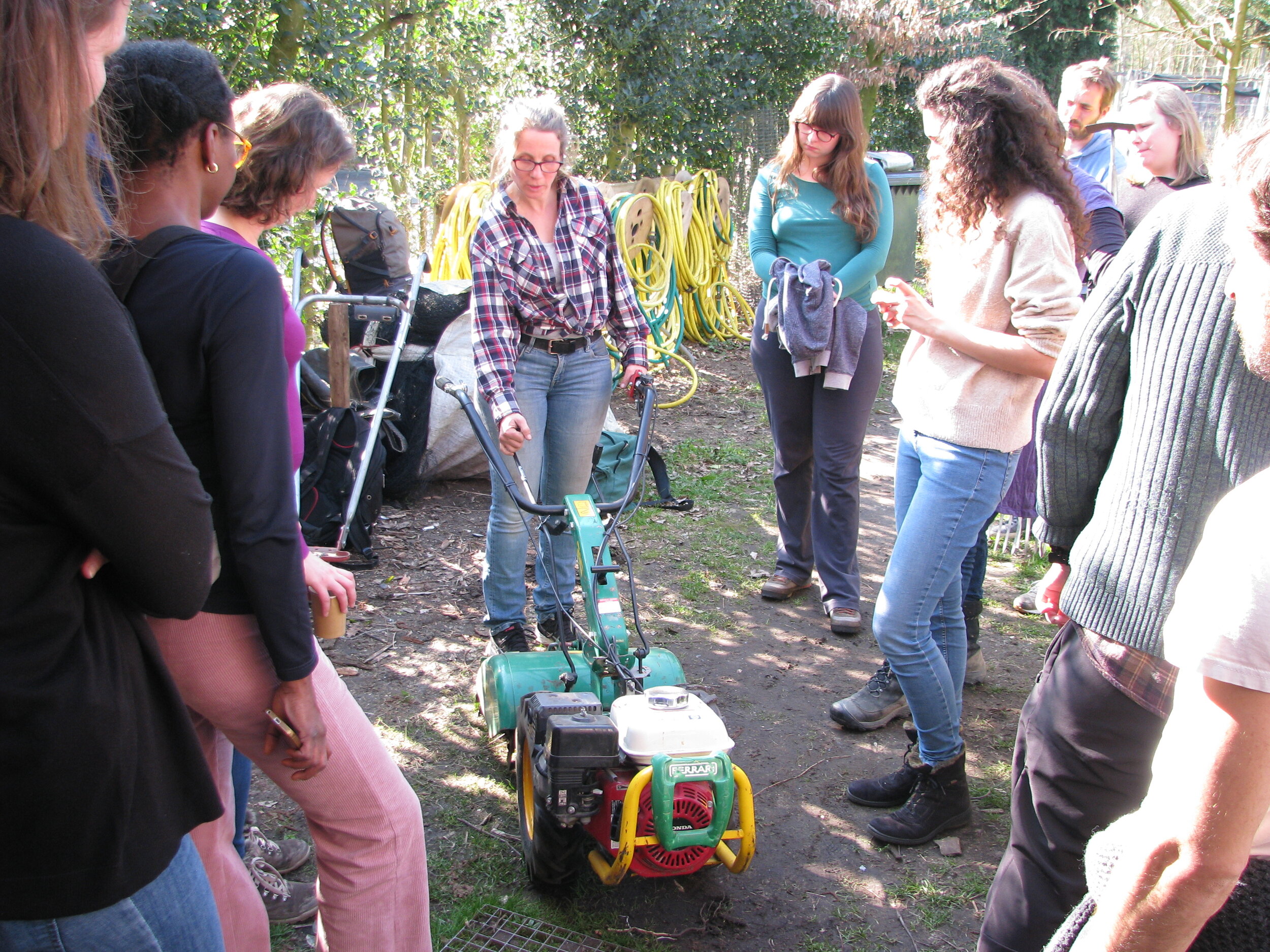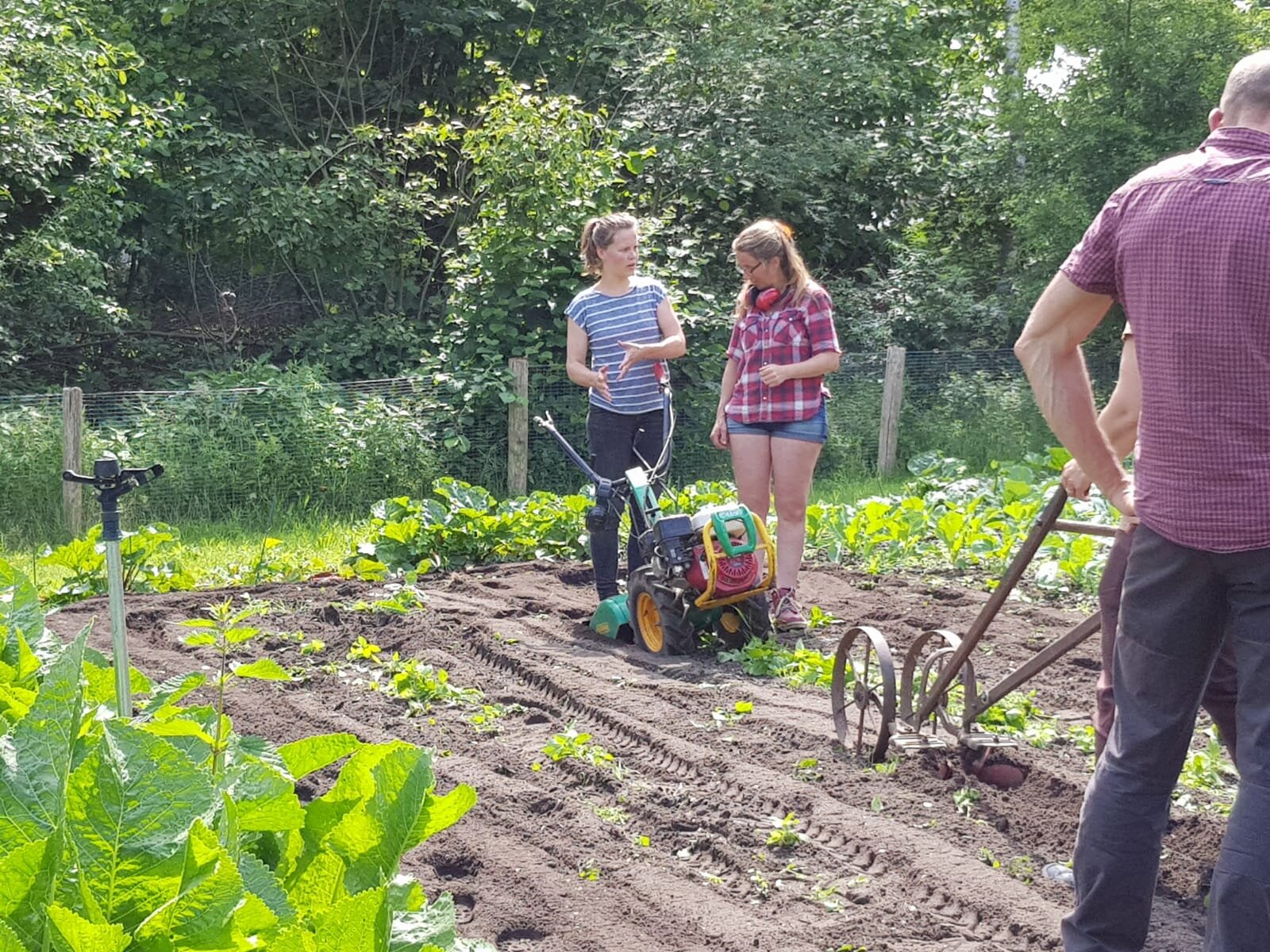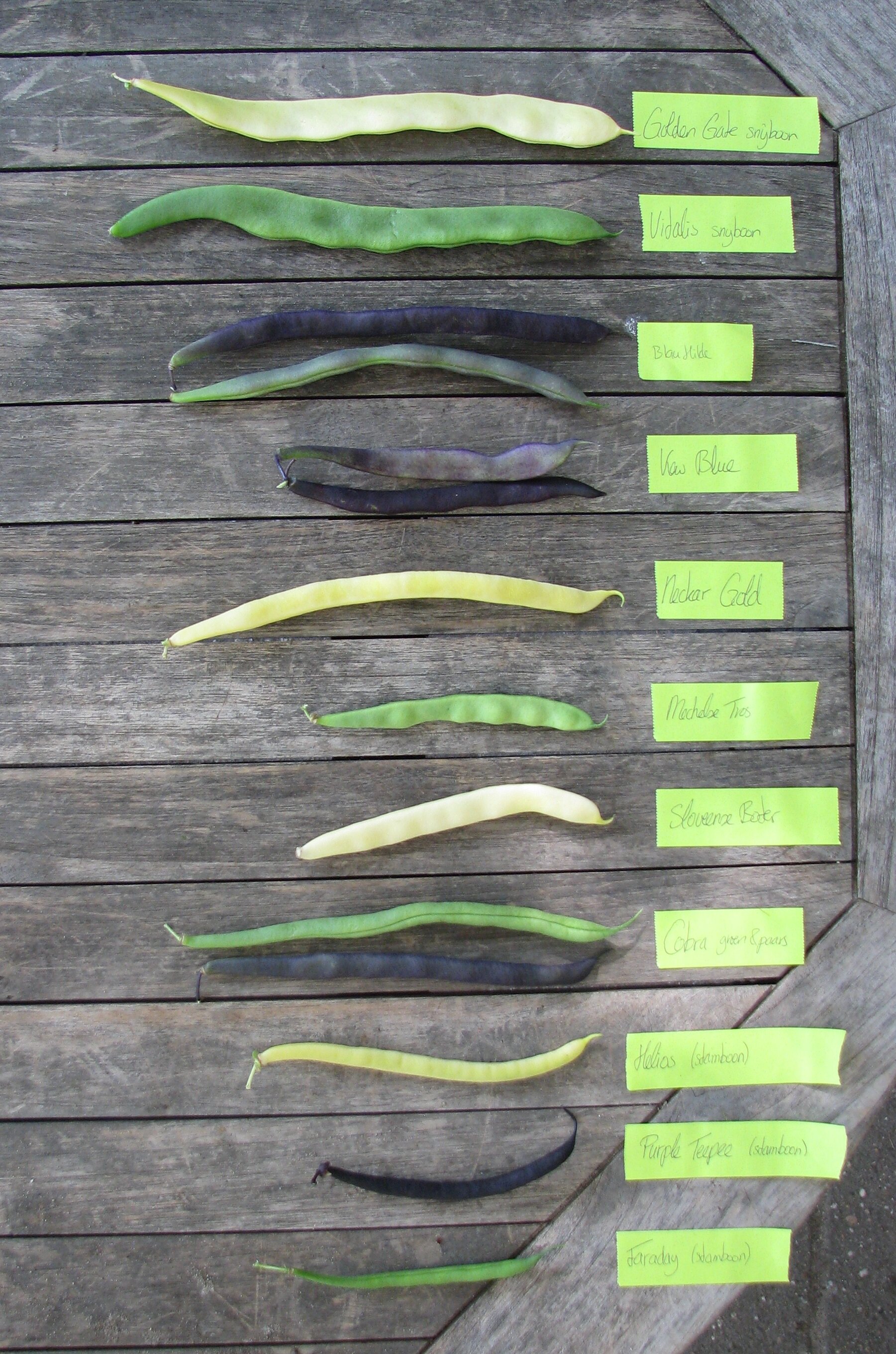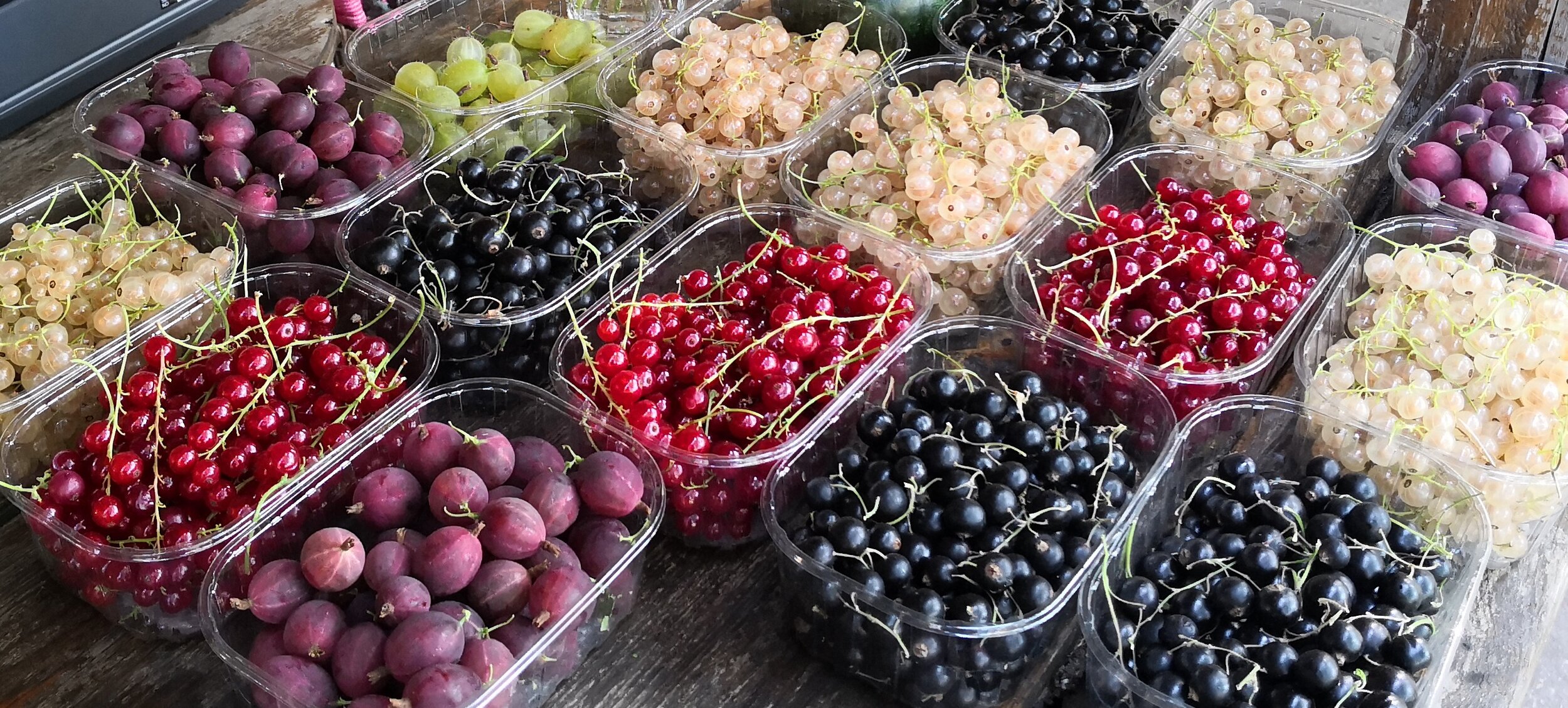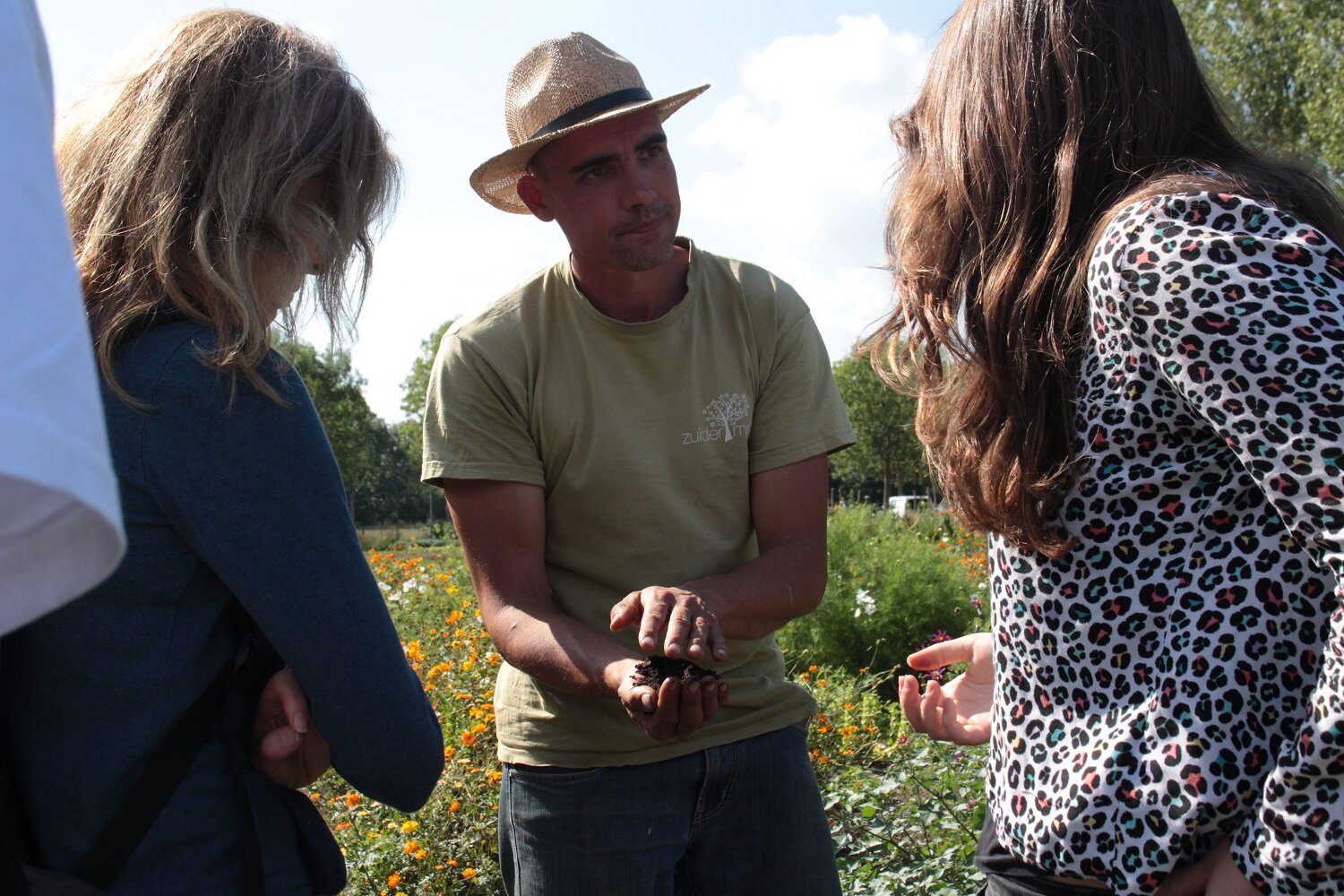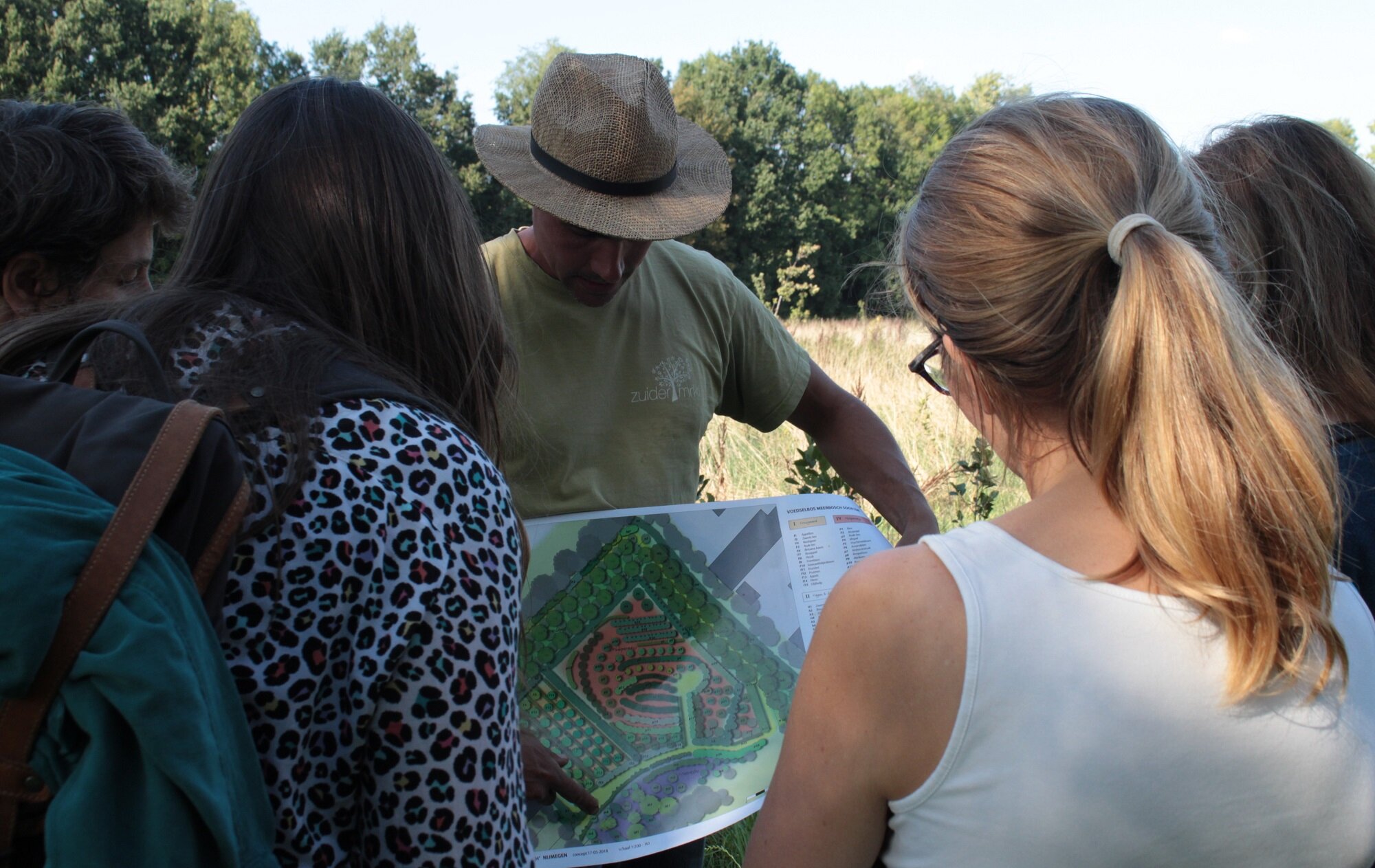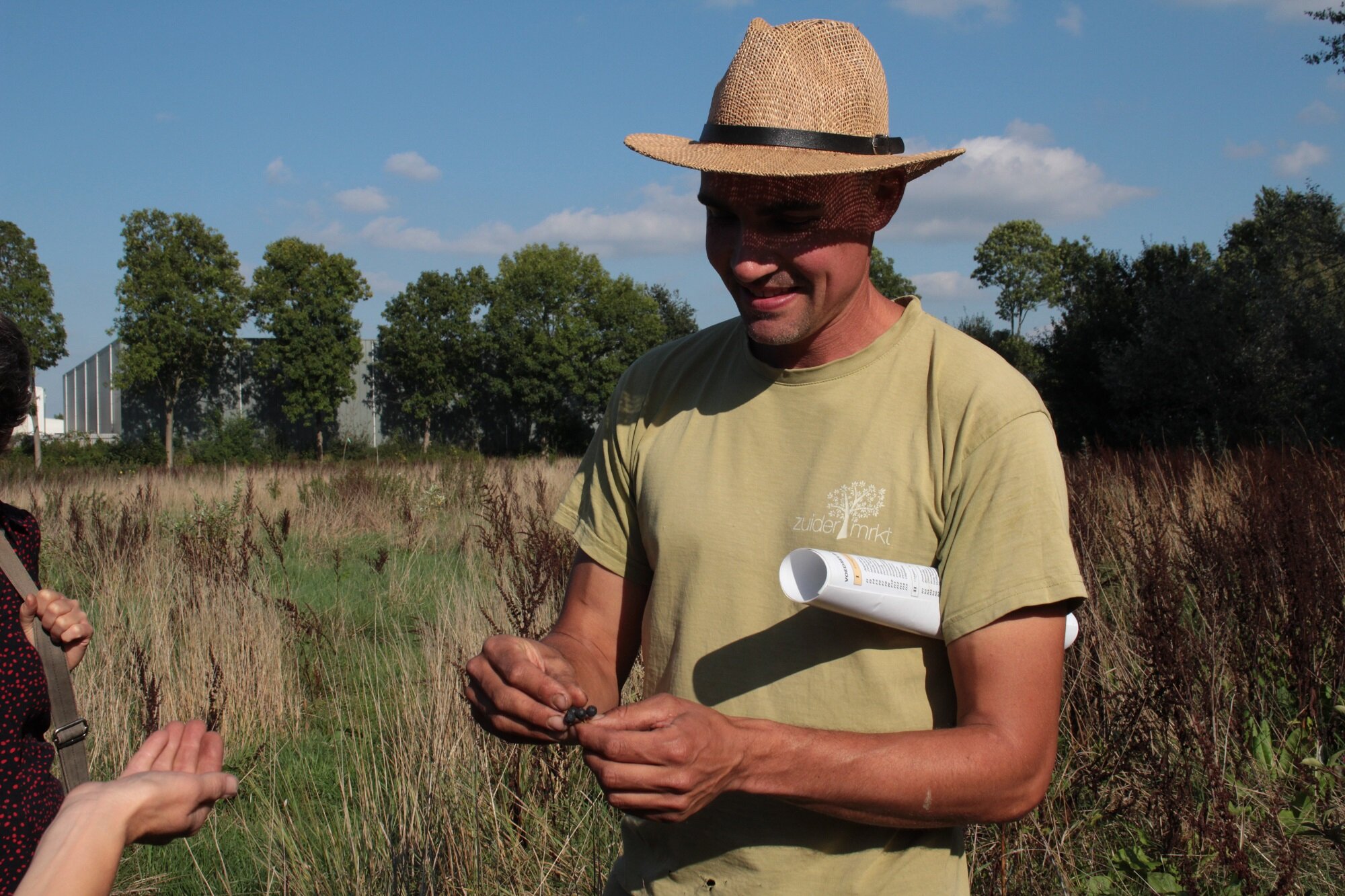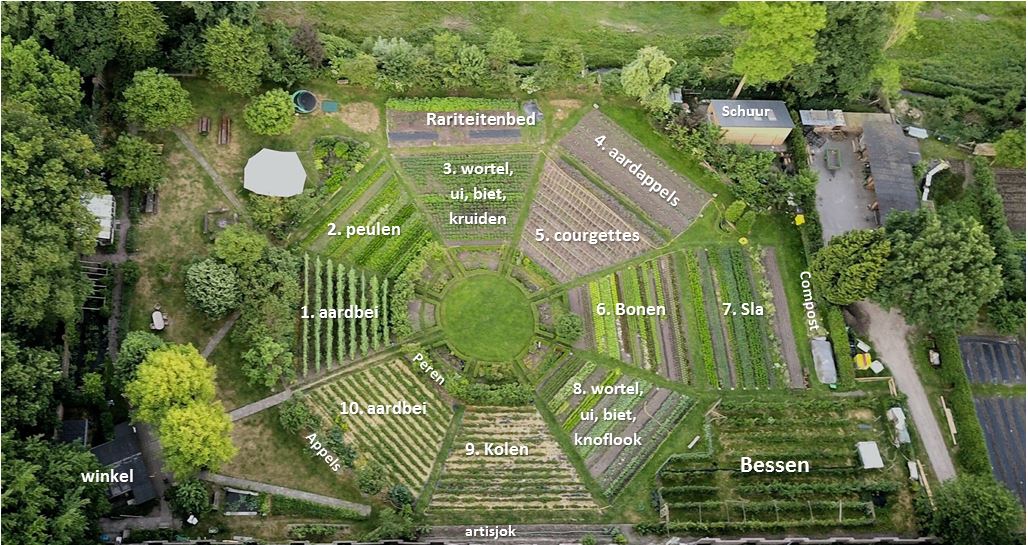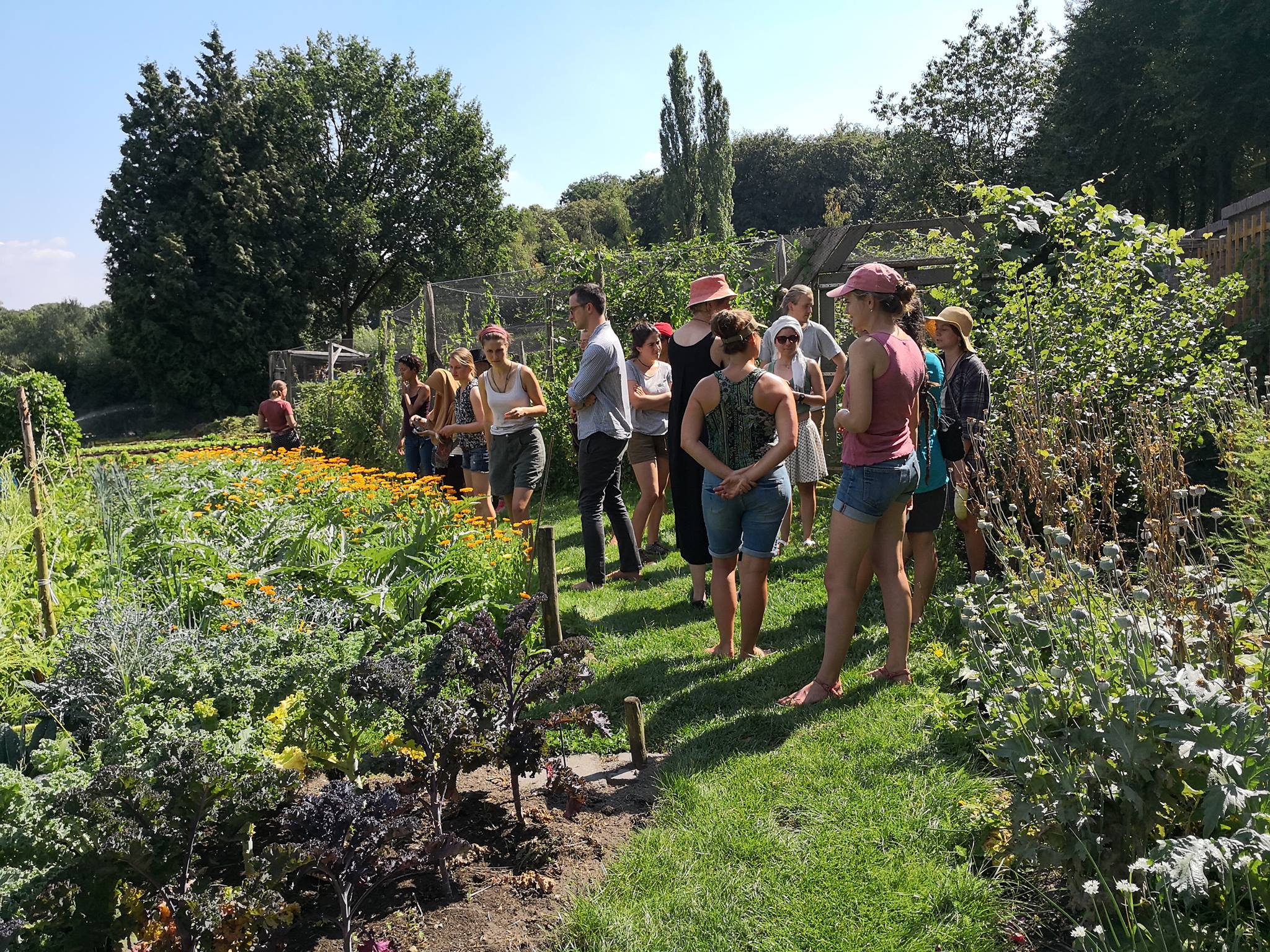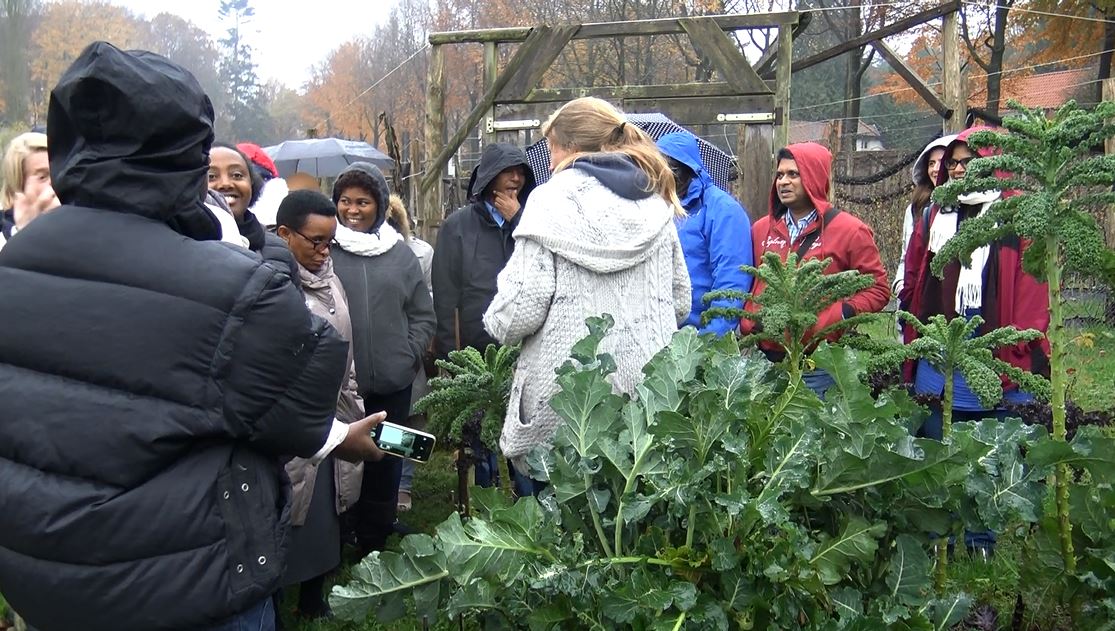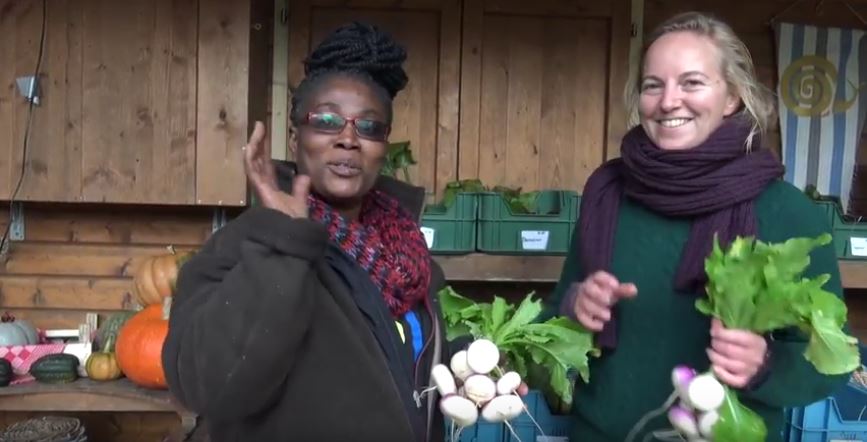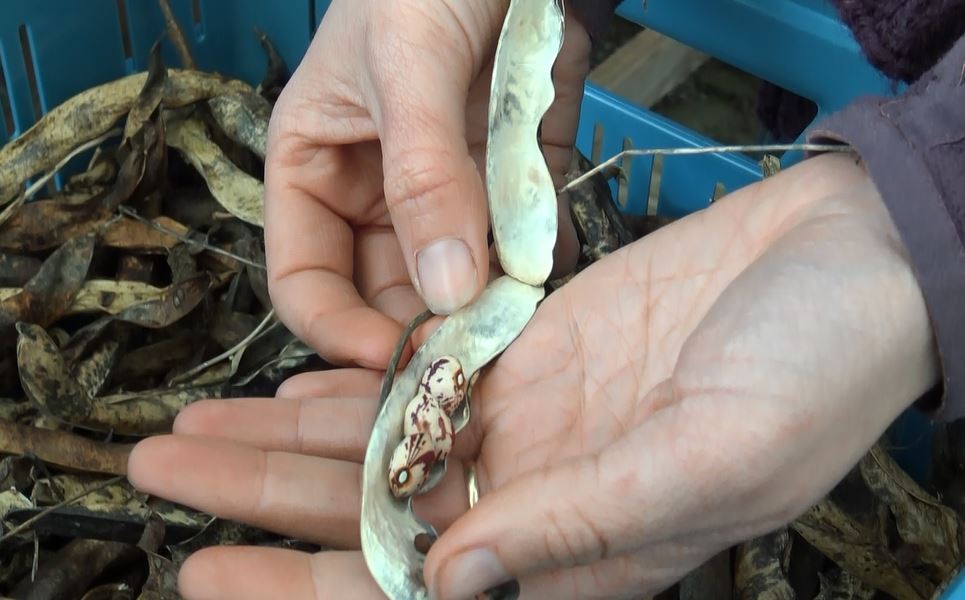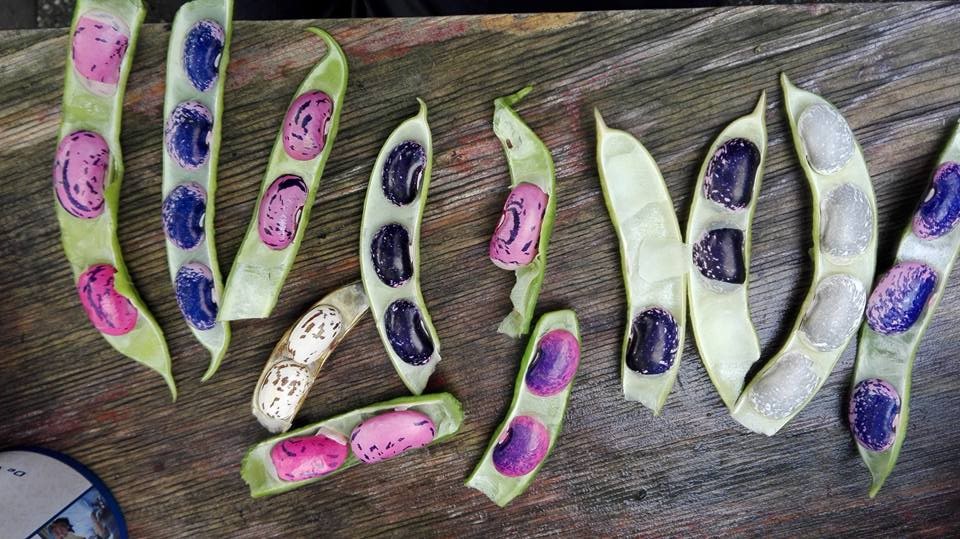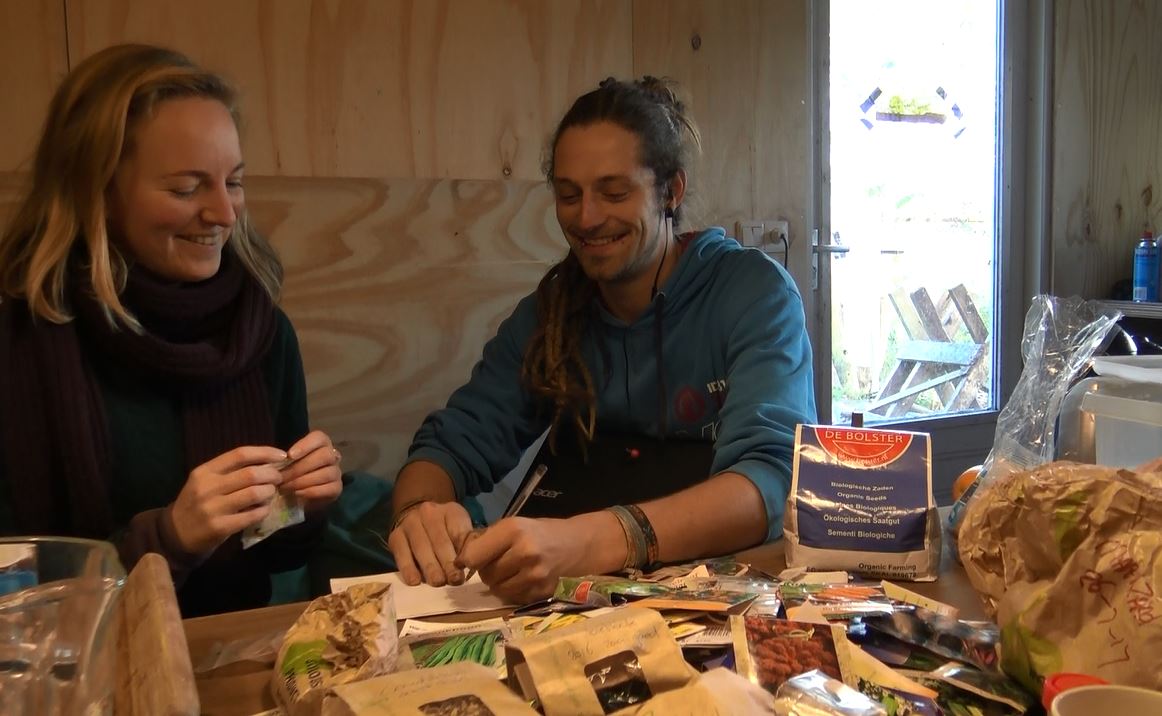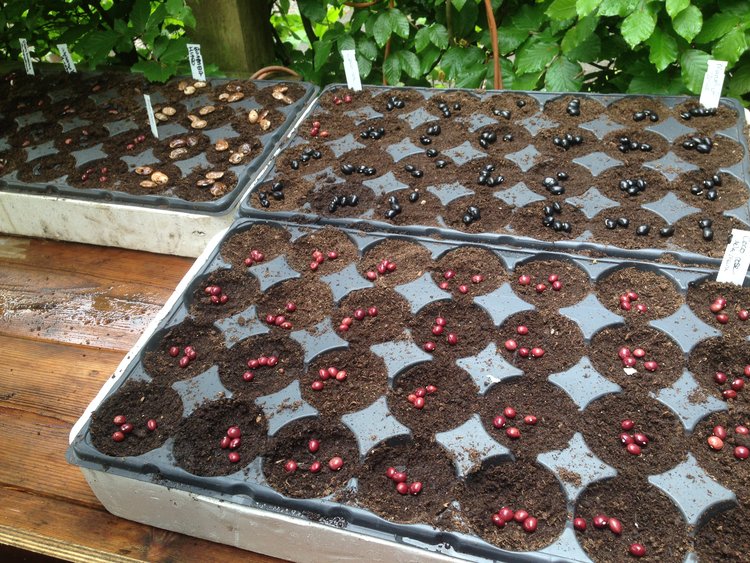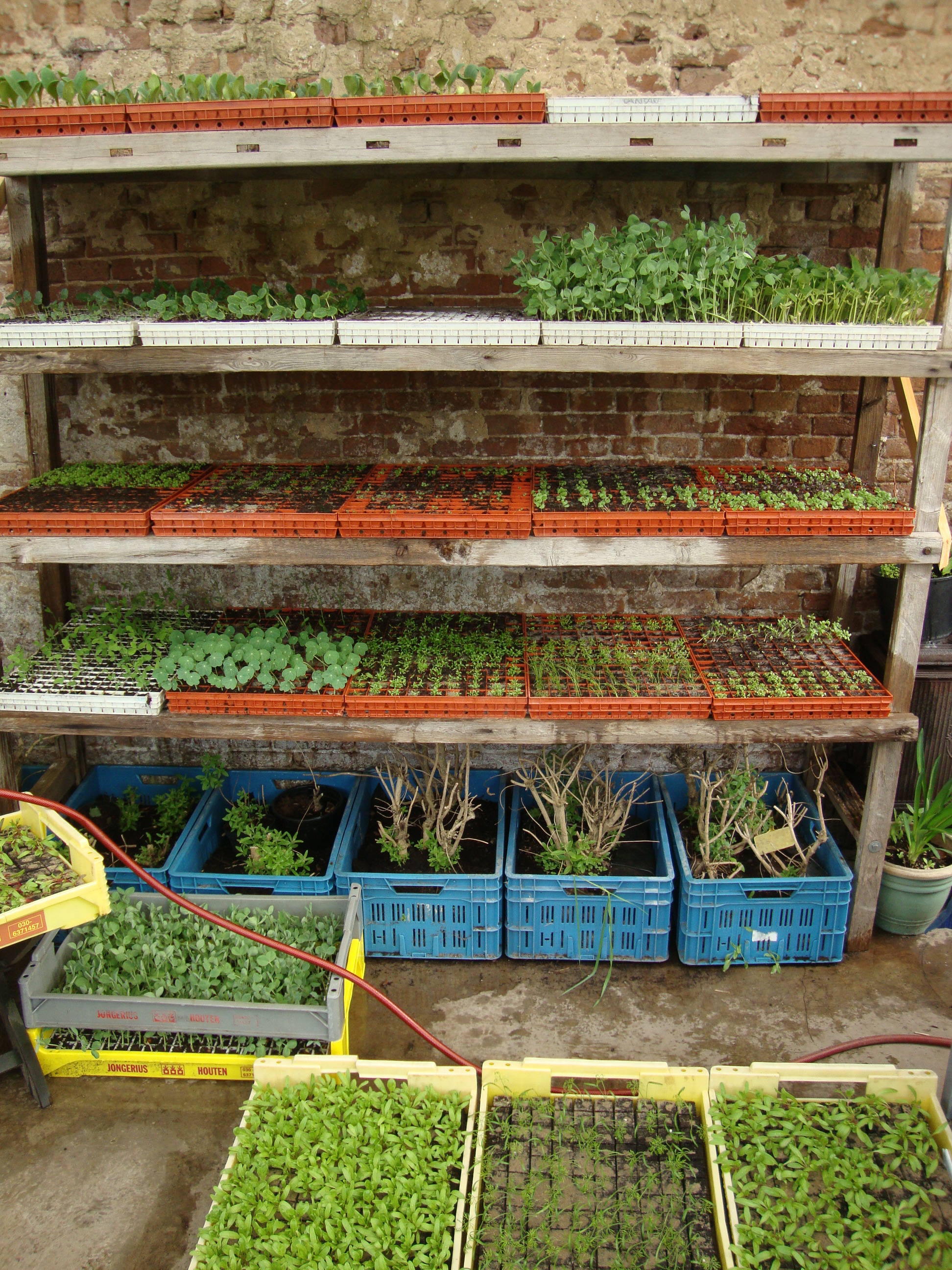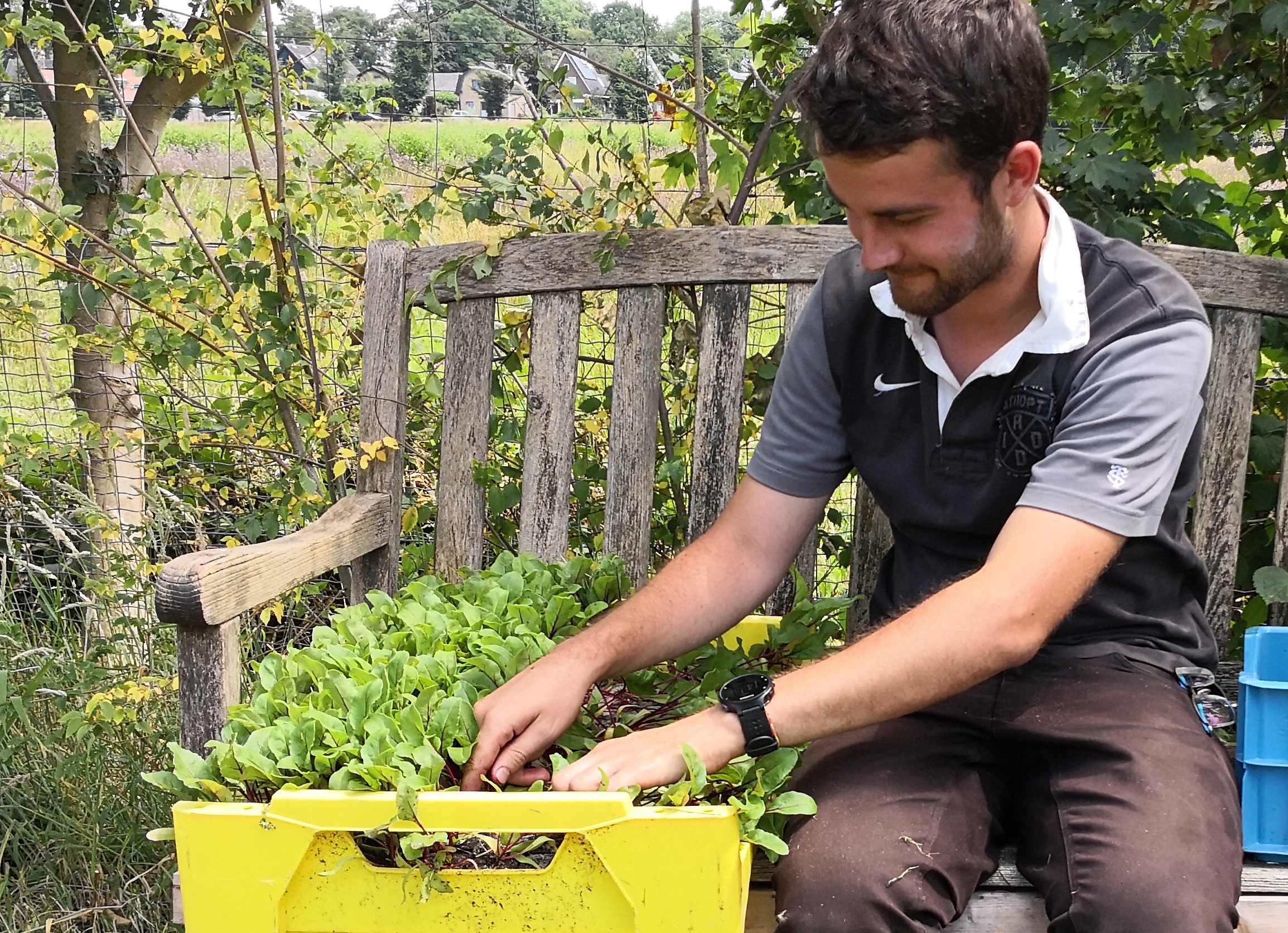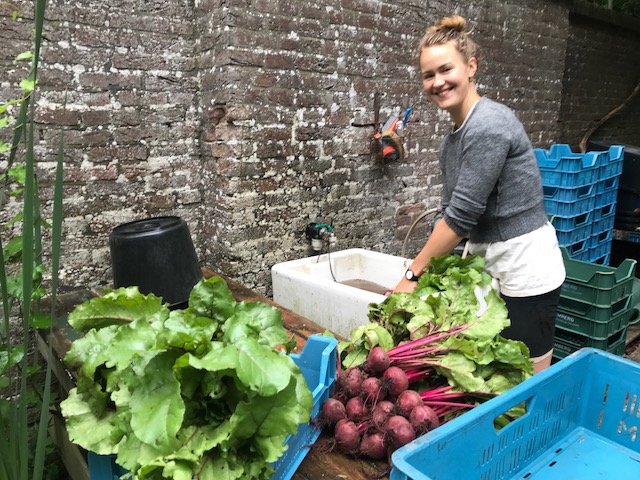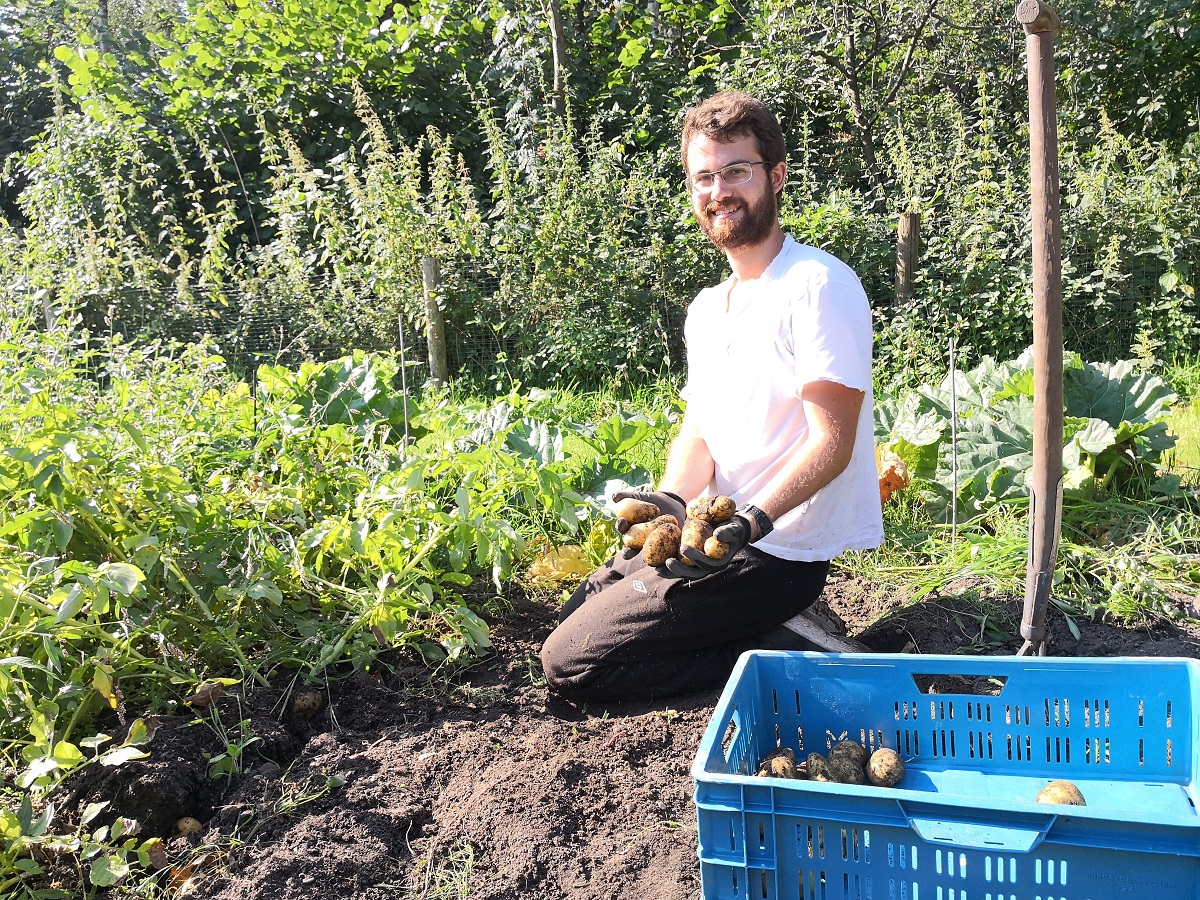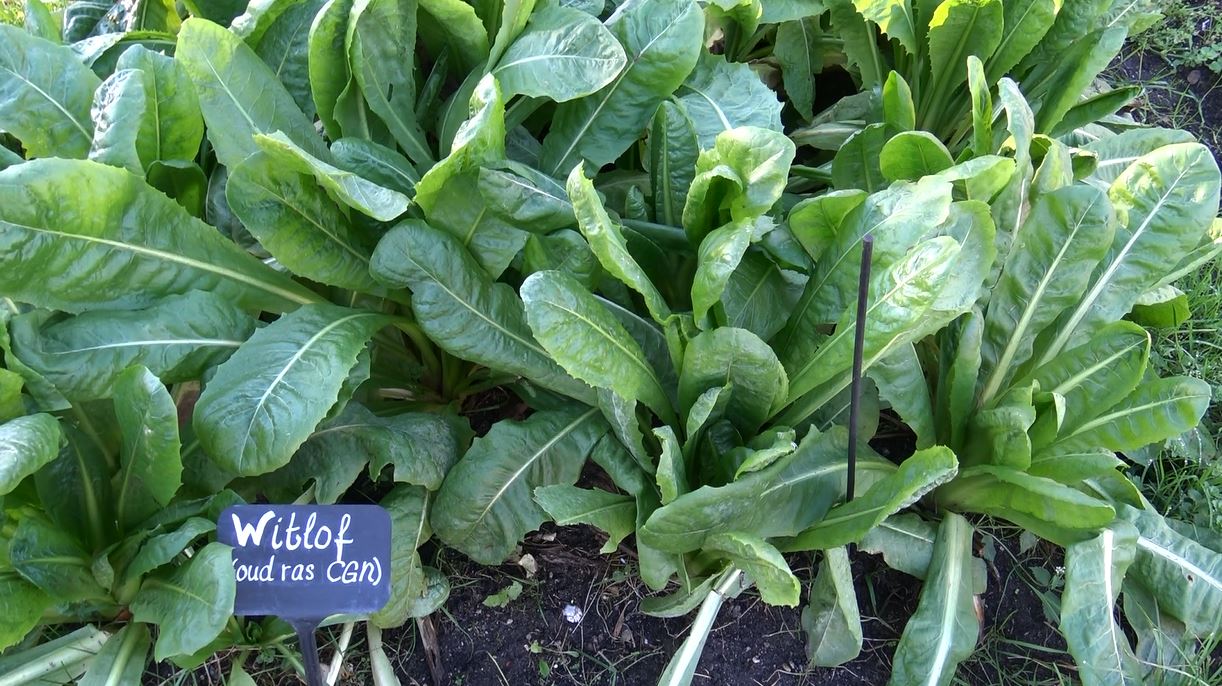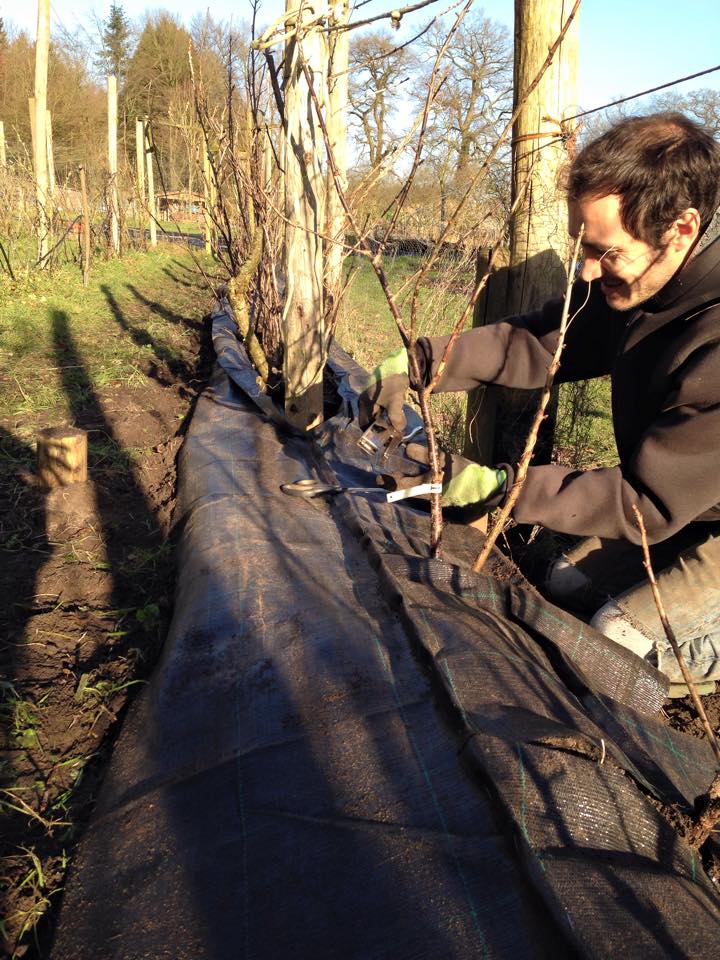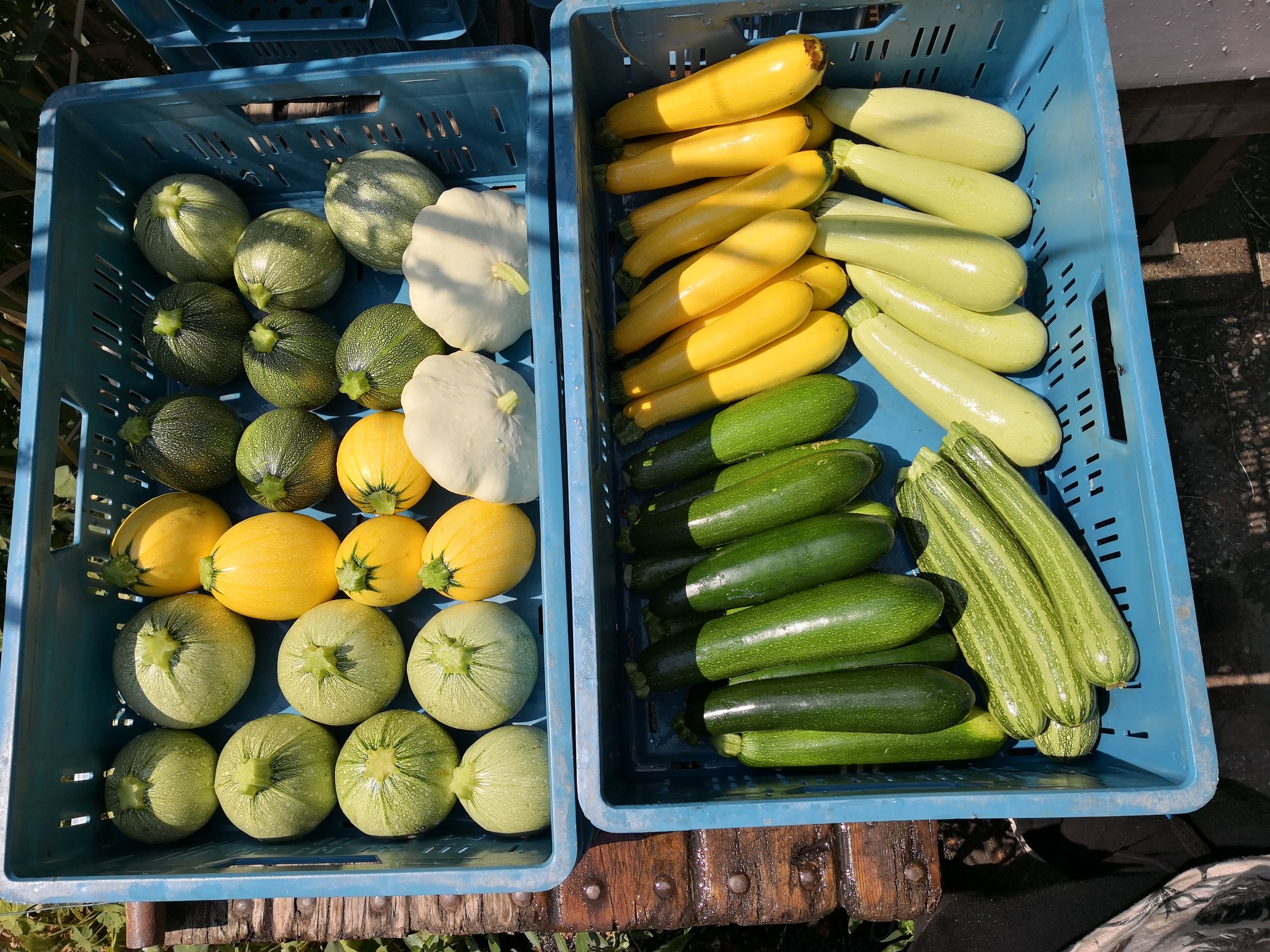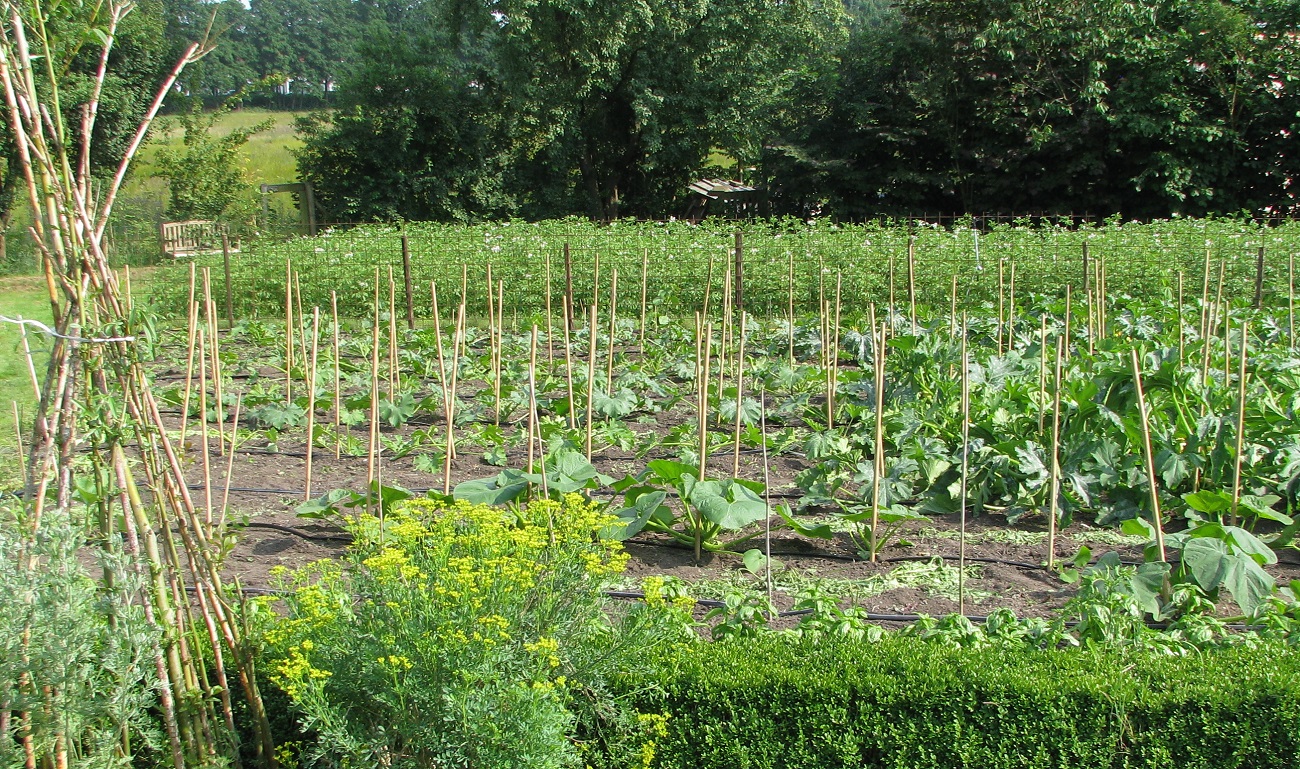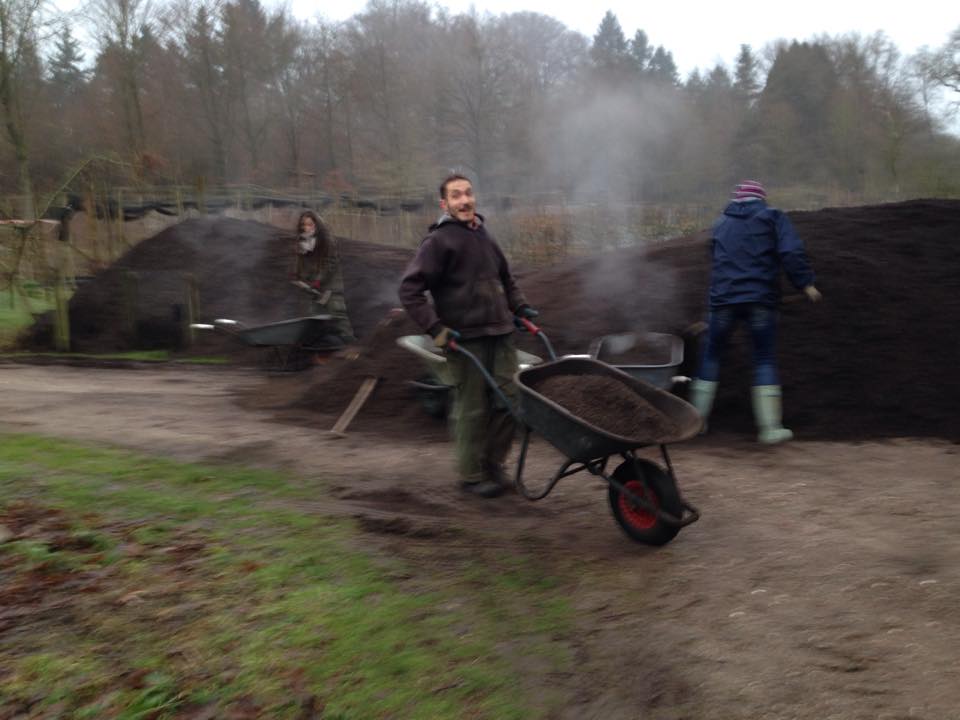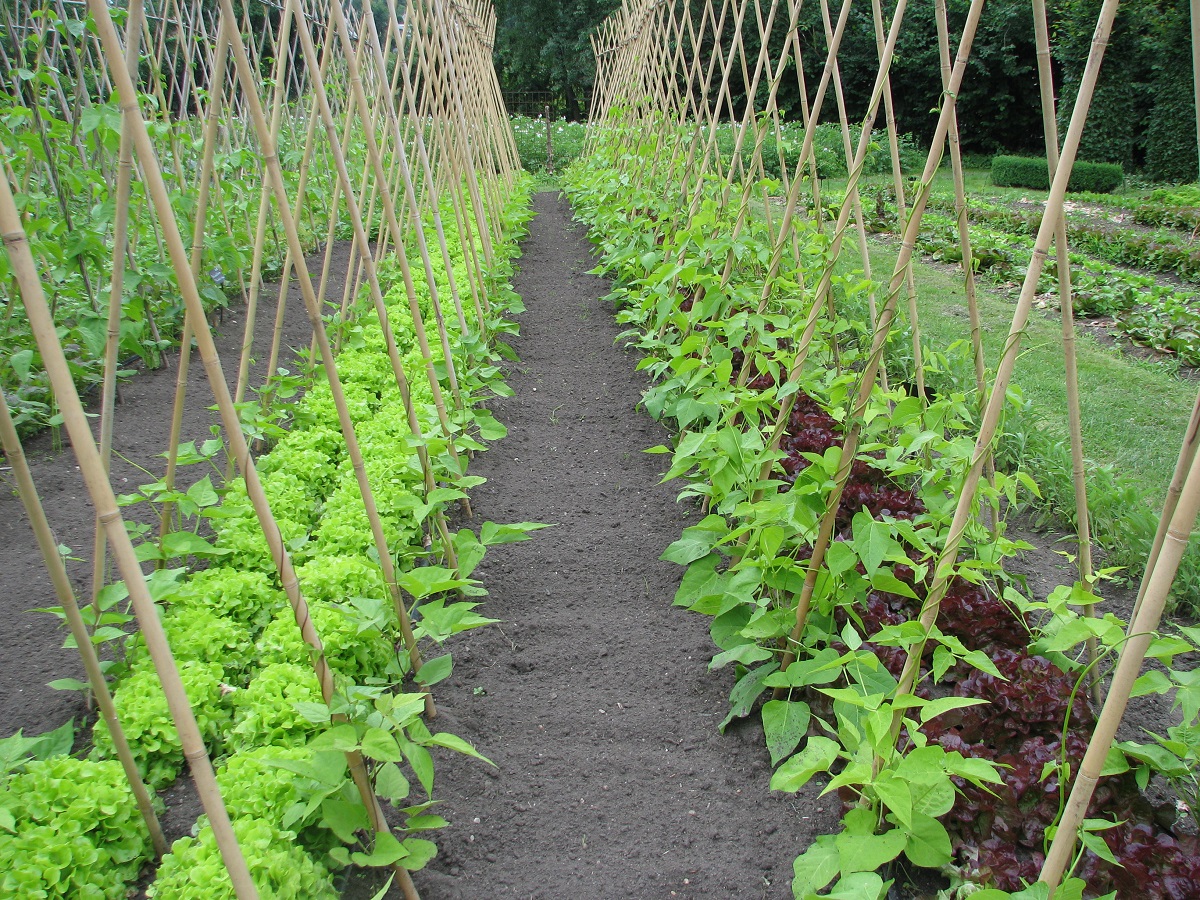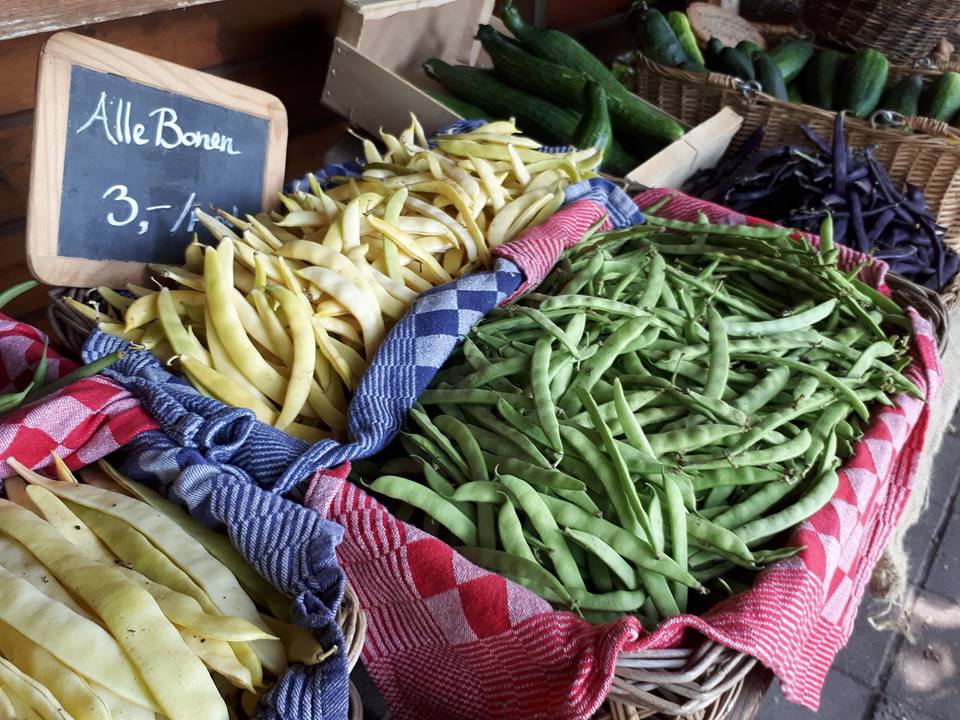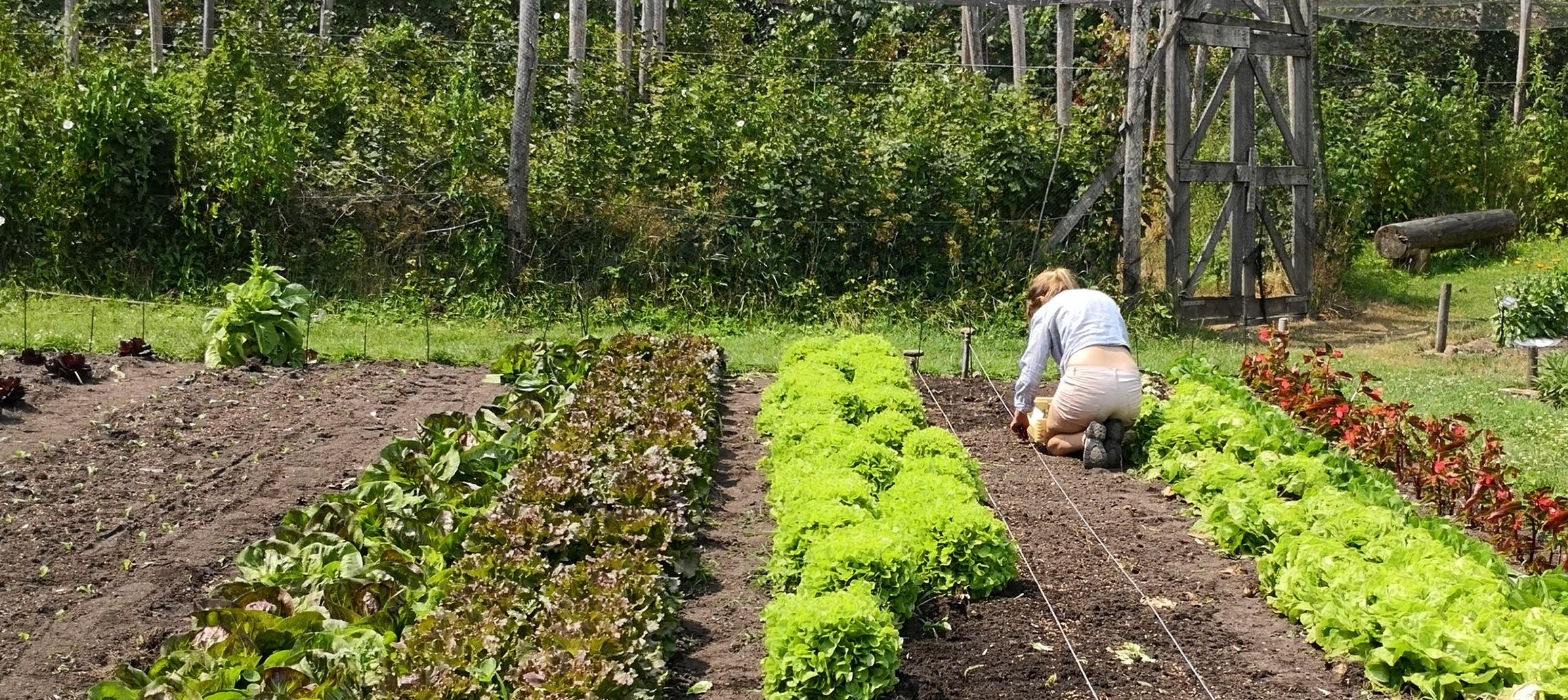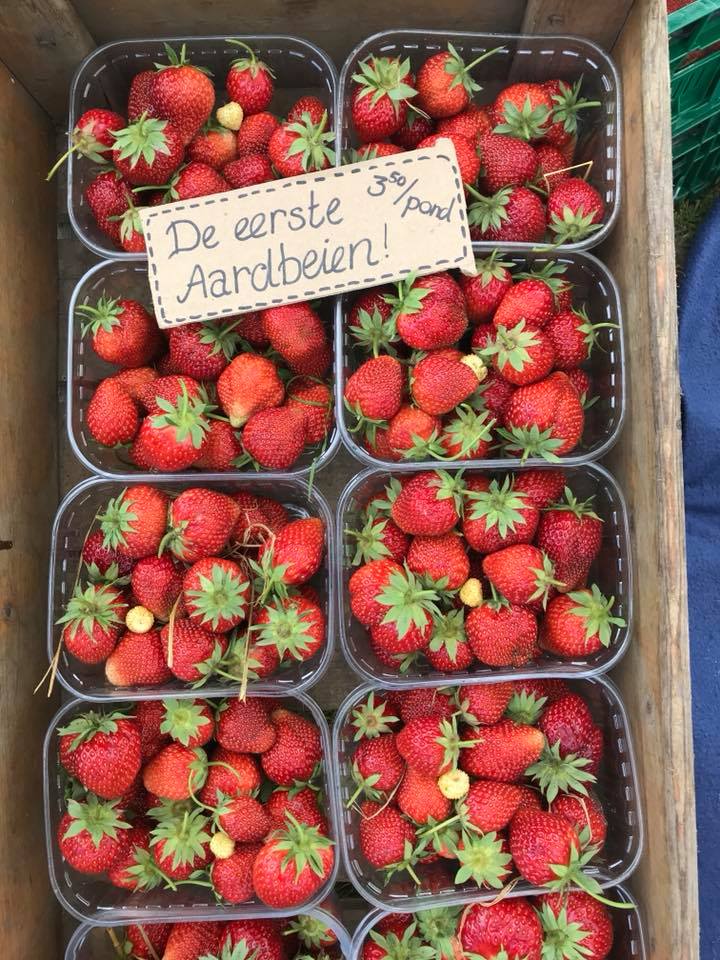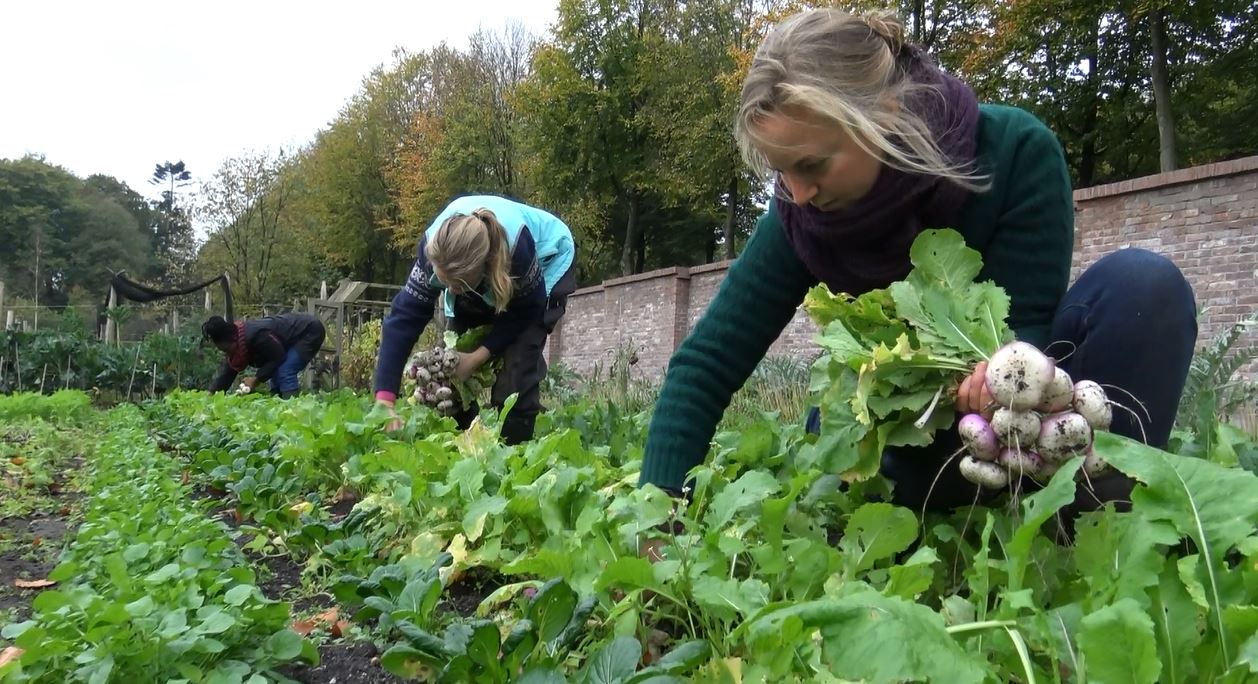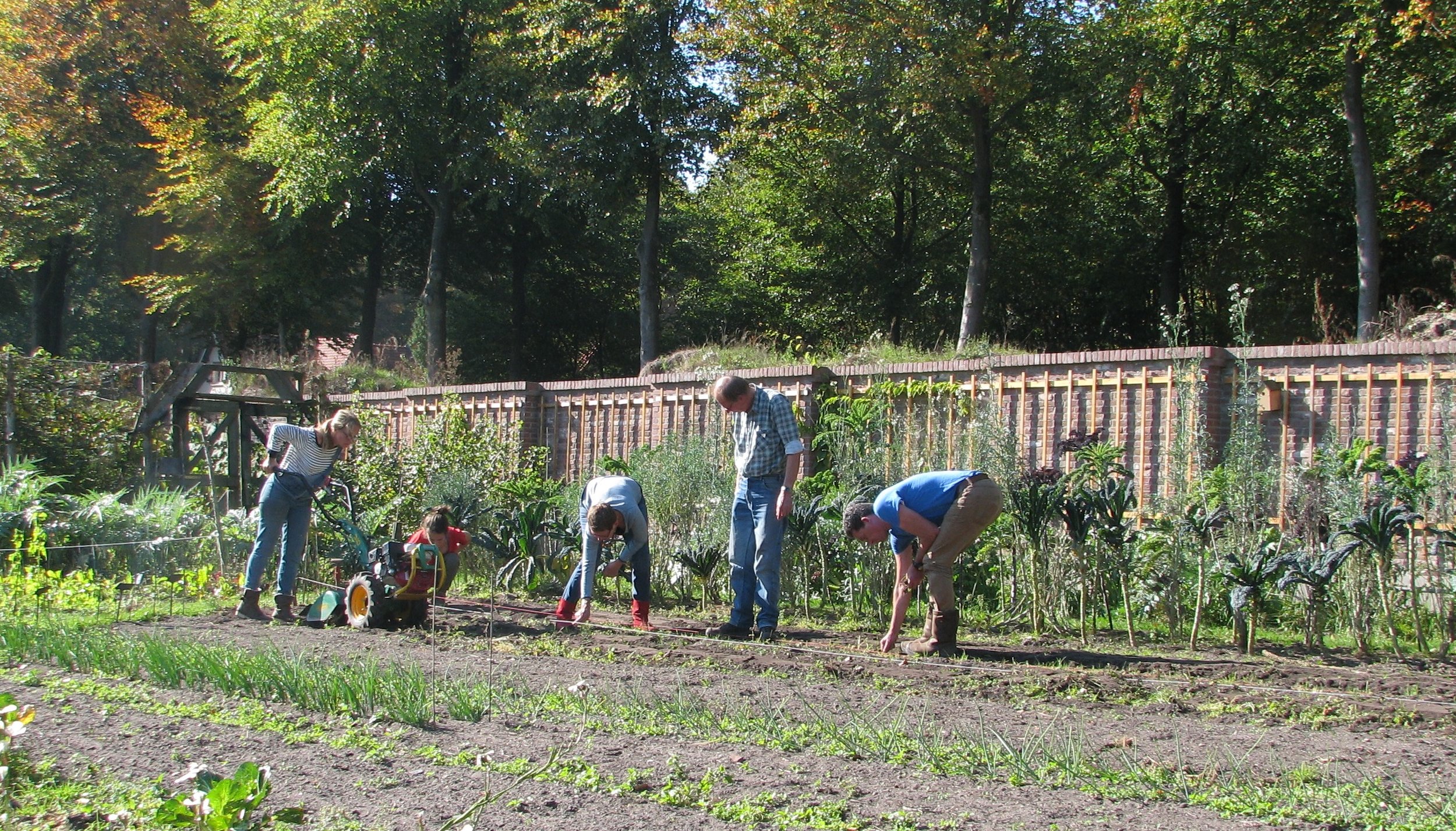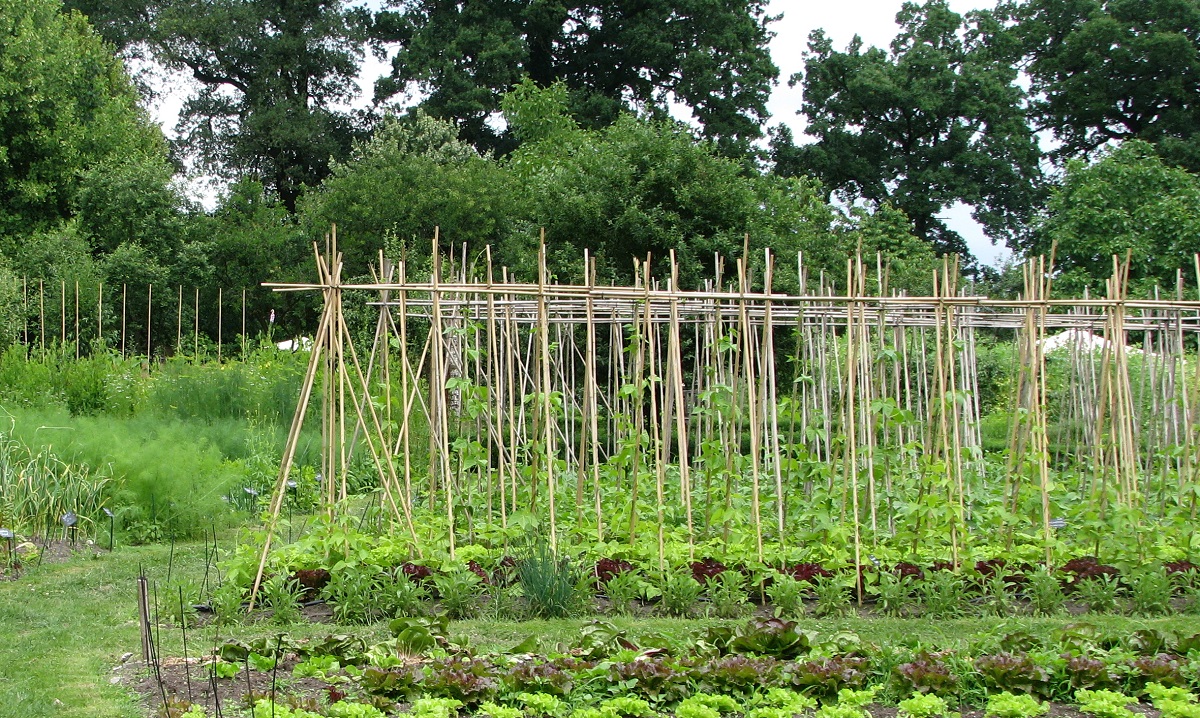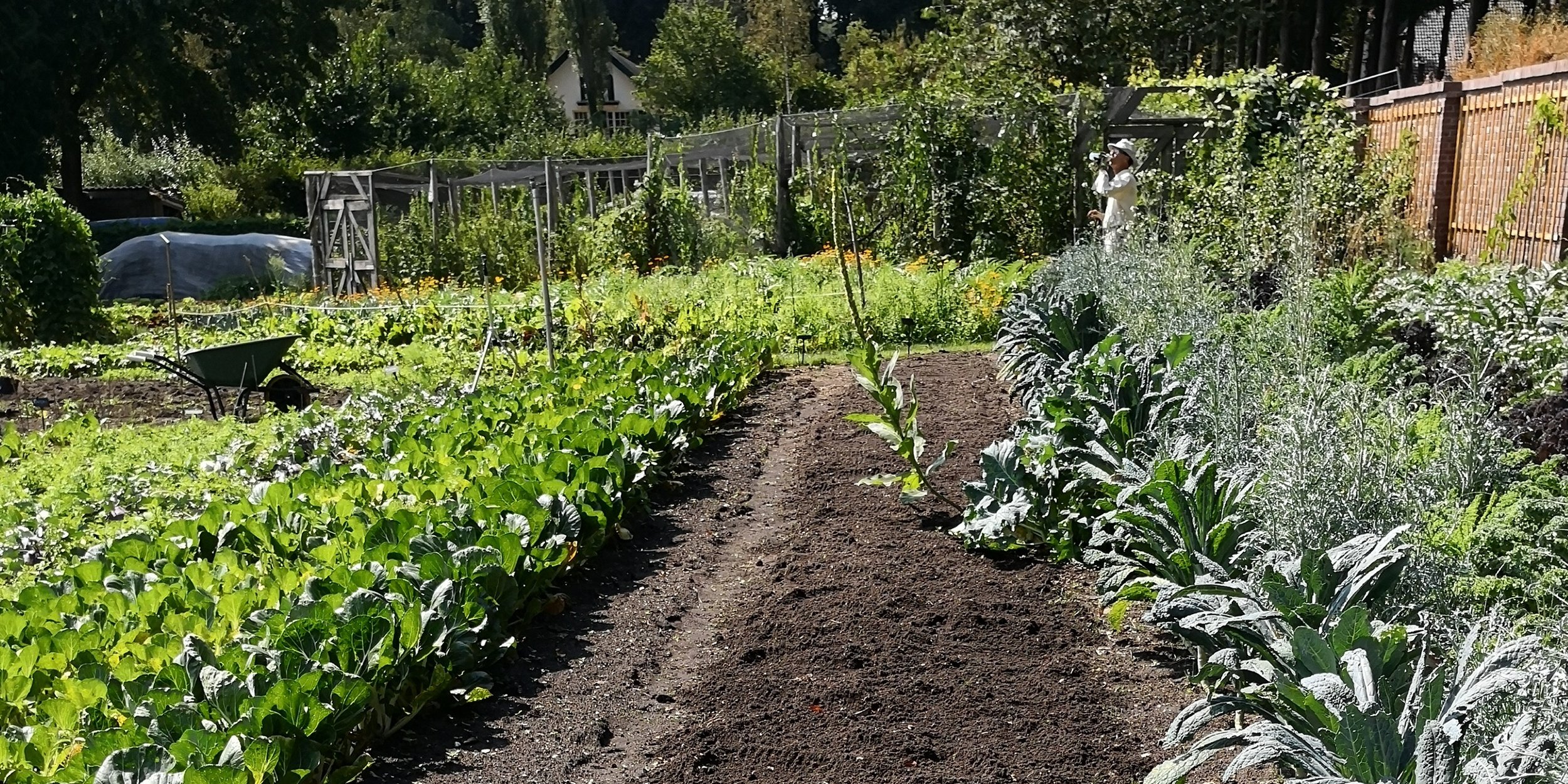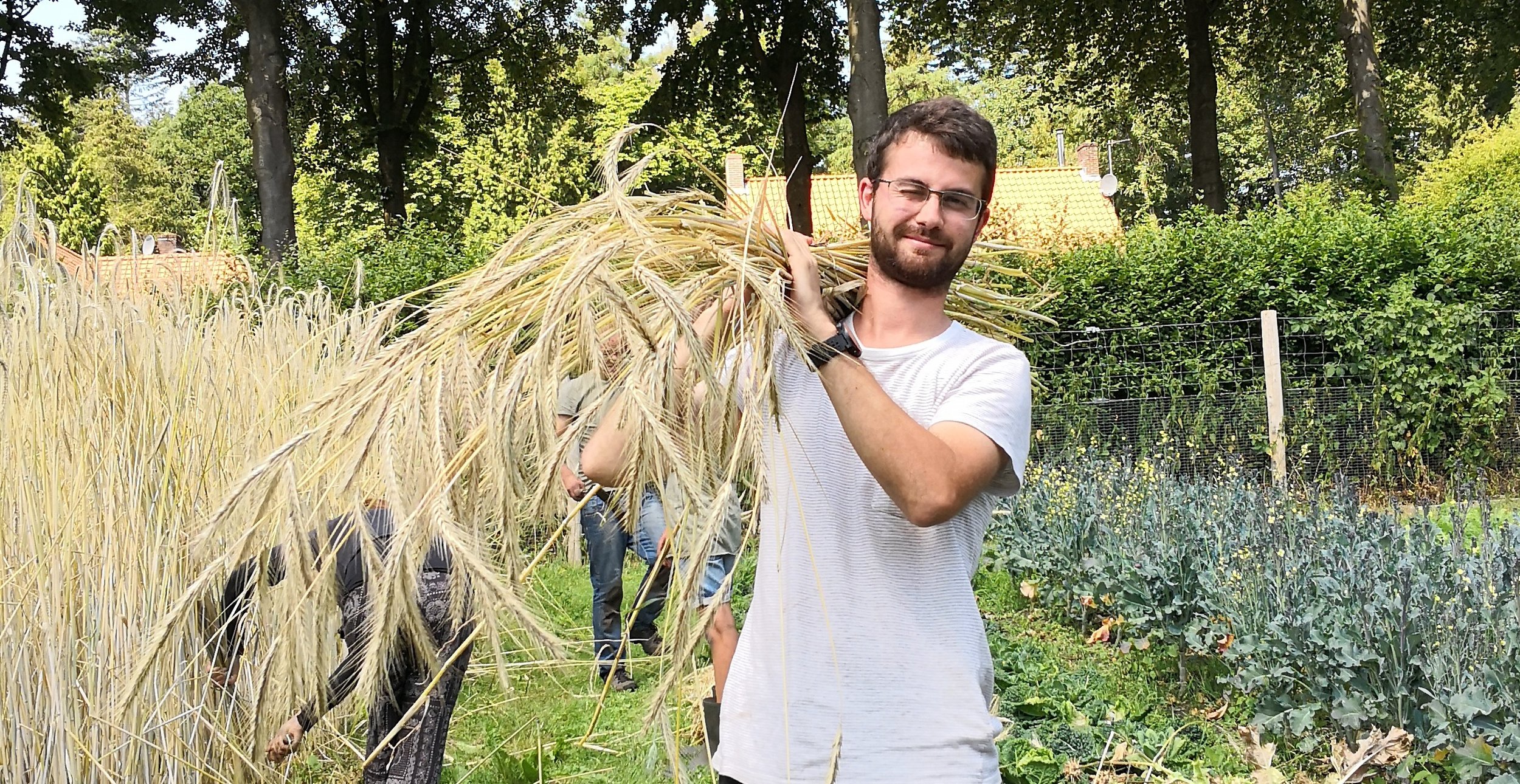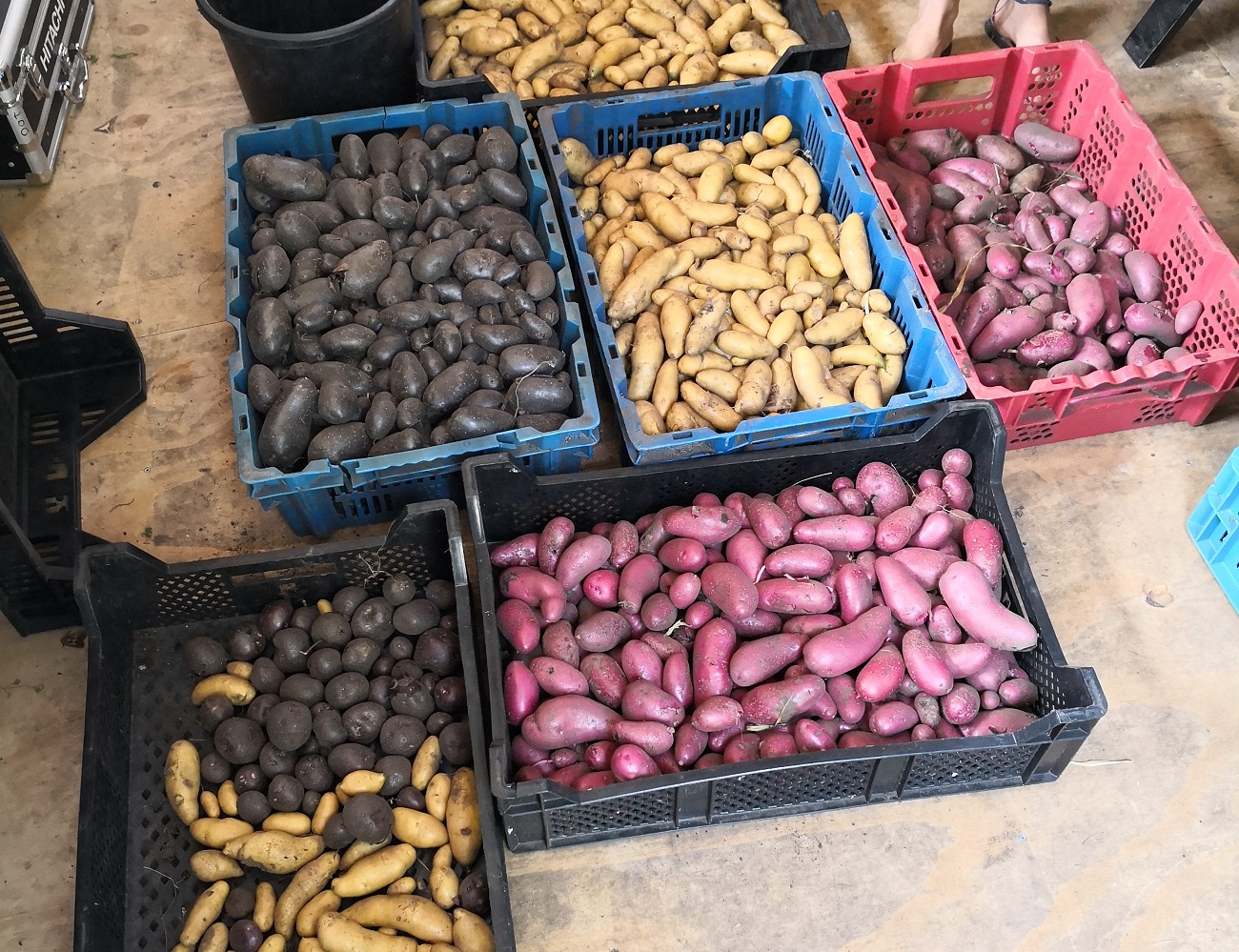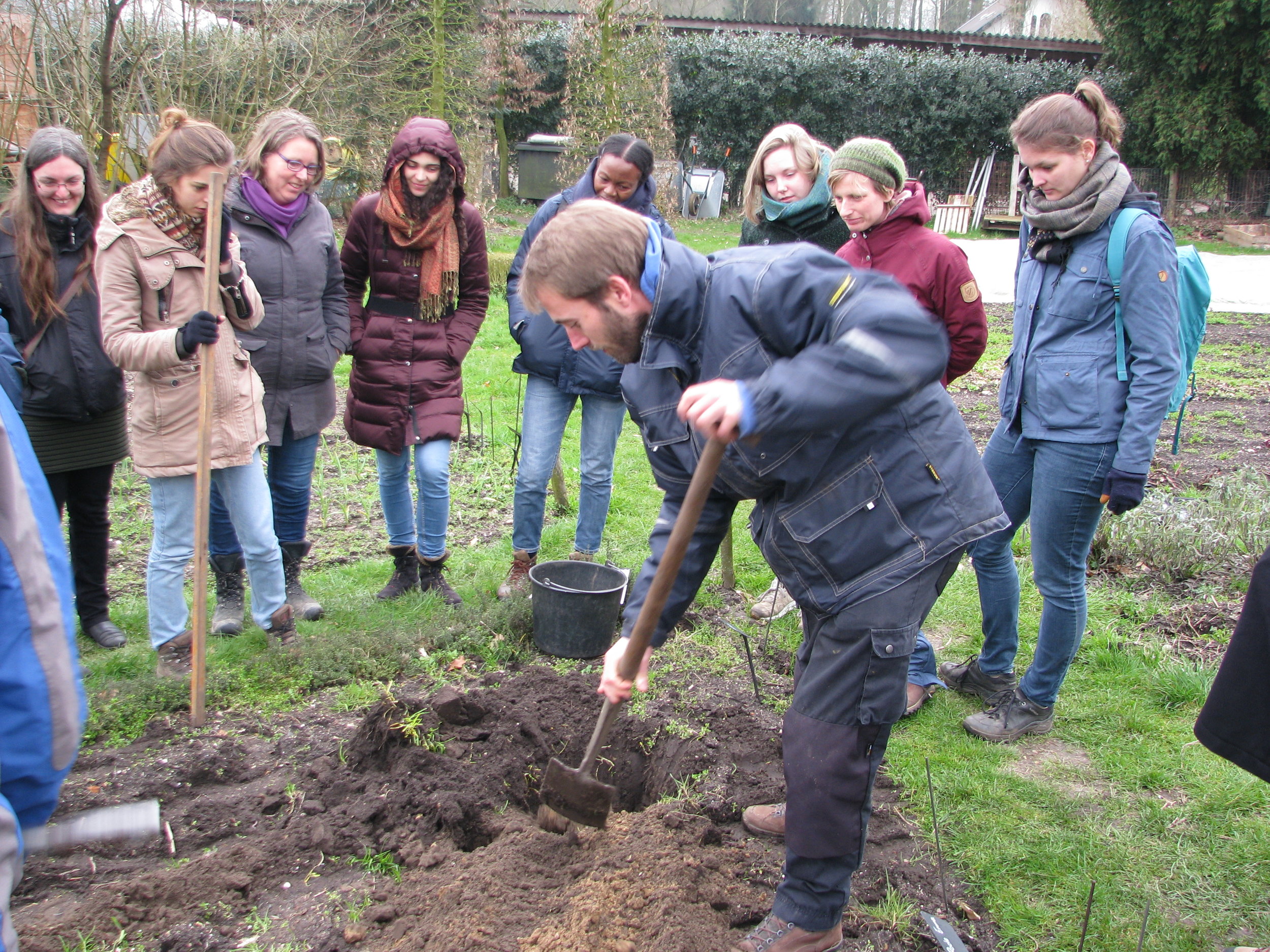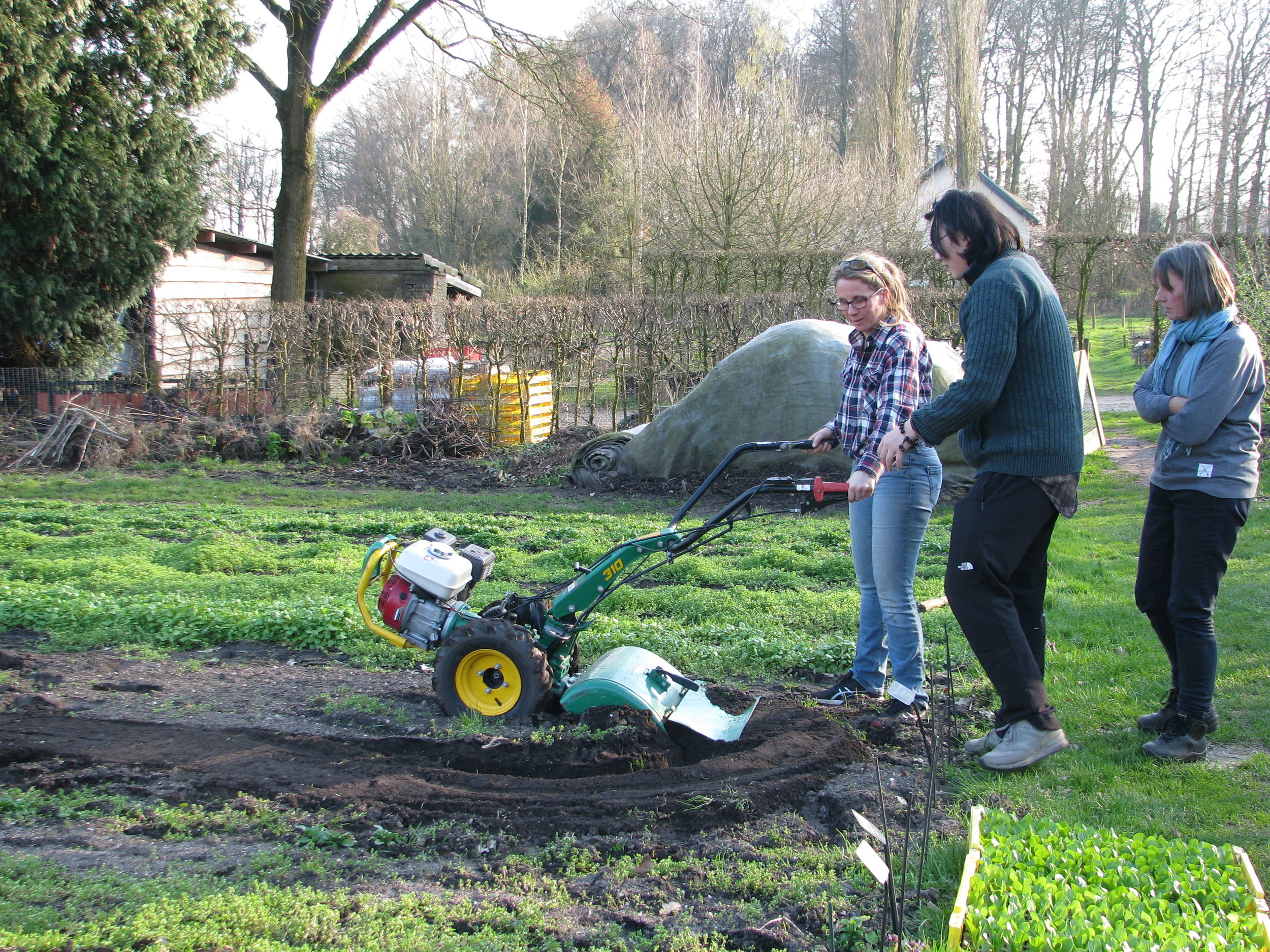Yearly masterclass Practical Agroecology (ENG)
This one week masterclass in March is a unique opportunity for students, PhD’ers and people in general who want to learn about agroecology in practice. Whether you actually want to start a garden/farm yourself or if you want to start projects with peasants in the Netherlands or abroad - this course will provide you with the practical knowledge you need. Following subjects will be addressed.
Agroecology & Starting a peasant garden.
How to start up a small scale organic garden? Esther Kuiler will share her story how she started De Ommuurde Tuin in 1999 and developed it in a way that she can now get her full income from small scale agriculture. Esther will show us around at the garden - with more than 400 varieties of vegetables, herbs and fruits - and you can ask her all your questions!Soil, (bokashi) compost & access to land.
How do you build up a healthy soil life? At the Ommuurde Tuin we build up the sandy soil from 0.2% organic matter to 8% organic matter with a lot of soil life, by using bokashi & compost and applying agroecological soil practices. We will share our story and teach you how to build up a healthy soil life. We will also focus on the topic access to land for ‘newcomers’ in agriculture. We will show several creative examples of ways in which people obtained land without needing a large amount of money.Design, crop rotation and green manure.
How to design a garden with different varieties of vegetables, herbs and fruits, considering crop rotation? How do you make sure you can always harvest enough every week for your veggy bags and farm shop? We will also discuss green manure. Why is green manure important and which varieties can you use?Diseases and natural enemies.
Recognize the basic diseases and know how to deal with it, without the use of chemicals. How do you get ‘natural enemies’ into your garden, which can attack pests?
Income & Community Supported Agriculture (CSA).
How do you generate an income, as a peasant, from small scale agriculture? We will explain the concept of CSA (Community Supported Agriculture), where money goes directly from the consumer to the producer, and moreover there is a shared risk. Moreover we’ll explain how to start up a CSA.Tools, machinery and irrigation.
What is our experience with different kinds of tools and machinery for a small scale garden? Which types of irrigation do we use?
Seeds and seedlings.
Where do you get seeds and seedlings and what is important to take into account? How to save seeds from your own farm?Two agro-ecological gardners, Jolke and Esther, invite you to the 1 hectare garden with more than 400 varieties of vegetables, herbs and fruits. They will share in-depth knowledge about agroecology / nature inclusive agriculture. Both Jolke and Esther have obtained their Msc. at Wageningen University and chose to become peasants in the Netherlands and Germany. Therefore they are experienced in linking theory with practice, bridging the university with the reality on the field. Besides practical theory at the farm, you can also chose for the option to conduct an internship at a farm of garden in the Netherlands after completing the course. Join the masterclass, bridge your scientific knowledge with the practical skills.
At organic garden de Ommuurde Tuin, we grow more than 400 different varieties of vegetables, herbs and fruit - including some old varieties from the seed bank in Wageningen (CGN). We sell our produce at our farm shop, via veggy bags (shareholders), to organic restaurants and to organic shops like Odin and Kardoen.
Masterclass 2021: 15 - 19 March
Time schedule:
09:45 - 10:00 : arriving, coffee, tea
10:00 - 10:15 : feedback previous day. Questions?
10:15 - 11:00 : Lecture 1
11:15 - 12:00 : Lecture 2
12:15 - 13:00 : Lecture 3
13: 00 - 14:15 : Lunch
14:15 - 15:00 : Lecture 4
15:15 - 16:15 : Lecture 5
16:15 - 16:45 : Ending the day. Questions, feedback
Optional: internship at a garden of your choice. We will give examples of organic farms and gardens in the Netherlands. Depending on your availability, you can work along in the field to get more hands-on experience and learn by doing!
Costs: 495- euro including organic coffee, tea, cake and lunch with products from the garden. You will also receive all presentation material in pdf, a certificate after completing the Masterclass Agroecology in Practice and a booklet (in Dutch) with more information about specific topics from the course.
ECTS. After completion of this course (and an additional ‘exam’), WUR students can obtain ECTS via the Farming Systems Ecology (FSE) chairgroup, via cor.langeveld@wur.nl
Corona. Due to corona regulations, there is the possibility we have to give part of the course online. We will do our best to have the course in real life as much as possible, but if part of the course will be online, we’ll make sure it’s interactive, so you can also get to know each other, with plenty of breaks and energizers so you can stay focussed, and make it interactive. The optional internships are allowed to continue in real life. Also, we will arrange practical work-along-days at Ommuurde Tuin.
Locations:
Mornings: ‘Clock House Building’, Generaal Foulkesweg 37, Wageningen. See map. Free parking lot available. There is also a big free parking lot on the east side of the Arborethum, at the Dreijenlaan.
(When corona is over and we no longe need to keep 1,5m distance, the location will be Clubhouse IJsbaan Renkum, crossroad ‘Kortenburg’ and ‘Beukenlaan’ in Renkum. See map. Free parking places available). Public transport: you can plan you trip via website 9292ov.nlAfternoons: Ommuurde Tuin, across Kortenburg 11 Renkum, see map.
Parking places available (free). Public transport: plan you trip via website 9292ov.nl
De Ommuurde Tuin is a one hectare peasant garden. We grow more than 400 different varieties of vegetables, herbs and fruit - including some old varieties from the seed bank in Wageningen (CGN). We sell our produce at our farm shop, to organic restaurants and to organic shops - bus far most of the produce goes to our shareholders via the CSA concept. In total, there are about 200 people who get vegetables from our one hectare garden every week throughout the harvest season.
Organizers of the course: Elske Hageraats (LandKultuur) & Esther Kuiler (Ommuurde Tuin)
Sign up: Join this unique masterclass on agroecology in practice! Send a motivation letter of max A4 to educatie@ommuurdetuin.nl Please also mention: whether you are a student or not, your phone number, so we can call you after the selection, and whether you are interested in receiving ECTS (WUR students only). Please note: people who want to join this course because they want to start their own farm/garden will be given priority during the selection process.
Help along: do you also want to see more agroecology in practice? Download our poster and spread the message!
Lecturers
Esther Kuiler
Esther is the owner of the organic garden Ommuurde Tuin since 1999. She has over 20 years of practical experience as an organic peasant farmer. Coming from Rotterdam city, she can explain like no other how it is to start up a small scale organic garden - step by step - as a ‘newcomer’ in agriculture. She co-designed the Ommuurde Tuin and the crop rotation system for over 400 varieties of vegetables, herbs and fruits.
Esther graduated at Wageningen University (WUR) in Msc. Organic Agriculture with a specialisation soil science. During her studies, she has conducted research in Ghana and Indonesia, looking at sustainability of forestry projects , and she organized several excursions to organic farms. She also gained experience as a research assistant at the experimental greenhouses of the WUR.
After her studies, she decided to practice what she preached and become an organic peasant farmer. Step by step, she designed the Ommuurde Tuin, the crop rotation system and the many elements of the garden. At his moment she obtains her income from the garden, year round. She’s an active member of BioTuinders, an association for organic (certified) gardens, which forms a collocutor of SKAL.
De Ommuurde Tuin is a “Erkend Leerbedrijf” (certified company for internships), which means she supervises students from Wageningen University, STOAS, Warmonderhof en HAS, conducting their internship (partly) at the garden.
Esther is regularly invited as a speaker, giving lectures about the soil, how to make a biodiverse crop rotation schedule and designing&maintaining historical gardens. Together with Elske, she wrote about the Ommuurde Tuin as one of the examples mentioned in the Dutch translation of ‘The Market Gardener’ by Jean-Martin Fortier. Esther is looking forward to share her theoretical and practical knowledge with you during the course!
Elske Hageraats
Elske works as second gardener at the Ommuurde Tuin. She graduated at the Wageningen University (WUR) in Msc. Biology and Msc. Development & Rural Innovation, where she focussed on Agroecology as science, practice and social movement. During her studies, she conducted research in Vietnam and Indonesia, where she got in contact with peasant movements fighting for food sovereignty. After one year abroad, she returned to the Netherlands and helped to start up “Toekomstboeren” (“Future Farmers”, member of La Via Campesina ). For 4 years, she was also part of the organization of the Farm Experience Internship - a 3 ECTS WUR summer course about agroecology in practice, set up and organized by students themselves.
After her study, she decided to gain more practical knowledge on organic agroecological peasant farming. She enrolled at the part-time farmers school Warmonderhof and conducted a 2 year internship at the Ommuurde Tuin. Next to her part-time education, she was the coordinator of the Boerengroep peasant foundation, connecting the university with the reality and challenges of (peasant) farmers in the Netherlands and worldwide. Via Toekomstboeren and Boerengroep, Elske joined and co-organized excursions, meetings with peasant organisations and unions, symposia, workshops and peasant markets in the Netherlands and abroad. She was part of the Dutch delegation at the Nyeleni Forum for Food Sovereignty in Romania and reported on alarming statistics of the CBS “Losing 22 farms a day”.
In 2017, she started her own company and works as a freelancer at the Ommuurde Tuin, where it became clear that, above all, agroecology is a way of life (“the most beautiful job in the world!”) . She’s looking very much forward to meeting you at the course!
This masterclass is highly recommended by:
prof. dr. ir. Jan Douwe van der Ploeg. Author “The New Peasantries”, former professor of Transition Processes at Wageningen University (Netherlands) and Adjunct Professor of Rural Sociology College of Humanities and Development Studies China Agricultural University, Beijing (China).
Stichting Boerengroep, Wageningen
Toekomstboeren (La Via Campesina)
Jessica Duncan. “Taught by people with hands-on-experience, this course provides learners with a unique opportunity to put theory into practice. This course gives learners the tools they need to move forward with agroecological food production, touching on agroecology as a practice, a science and a movement. If you want to start growing food, or if you want to develop a stronger, more sustainable and resilient food system, then this is the course for you.” - dr. Jessica Duncan, Wageningen University Teacher of the Year 2017
Julian Cortes. “One of the challenges peasant communities around the world are facing nowadays is related to the access to real markets in difficult realities. When I discover the Omuurde Tuin in The Netherlands I realised how powerful could be the scheme of Community Supported Agriculture. At the end is a process of solidarity economy where people are satisfying their needs in a creative way and not depending so much on the forces of the market, (which sometimes are too much excluding for those at the bottom of the society). So, I strongly recommend this inspiring course to make you more creative in using agroecology as a way to get your own livelihood.” - Julián Cortés. Colombian activist in solidarity economies. PhD candidate in Sociology of Development and Change, Wageningen University.
Pieter de Vries. “Agro-ecological cultivated food is not only tastier and healthier, it also contributes to the struggles of consumers and producers in the North and in the South for global food justice. I therefore warmly recommend this course as essential for your well-being and for improving the world.“ - dr. ir. Pieter de Vries, lecturer Sociology of Development and Change, Wageningen University
Dirk Roep. “Growing food youself in an agroecological way. It’s an enrichment for nature, humanity and it’s surroundings. Experience it yourself at the Ommuurde Tuin, where peasant farmers are growing more than 400 varieties of vegetables, herbs and fruits on one hectare. An Art! But one which you can learn…” - dr. ir. Dirk Roep, assistant professor Rural Sociology Group, Wageningen University
Kees van Veluw, Louis Bolk Instituut and lecturer Ecological Design and Permaculture , Wageningen University



